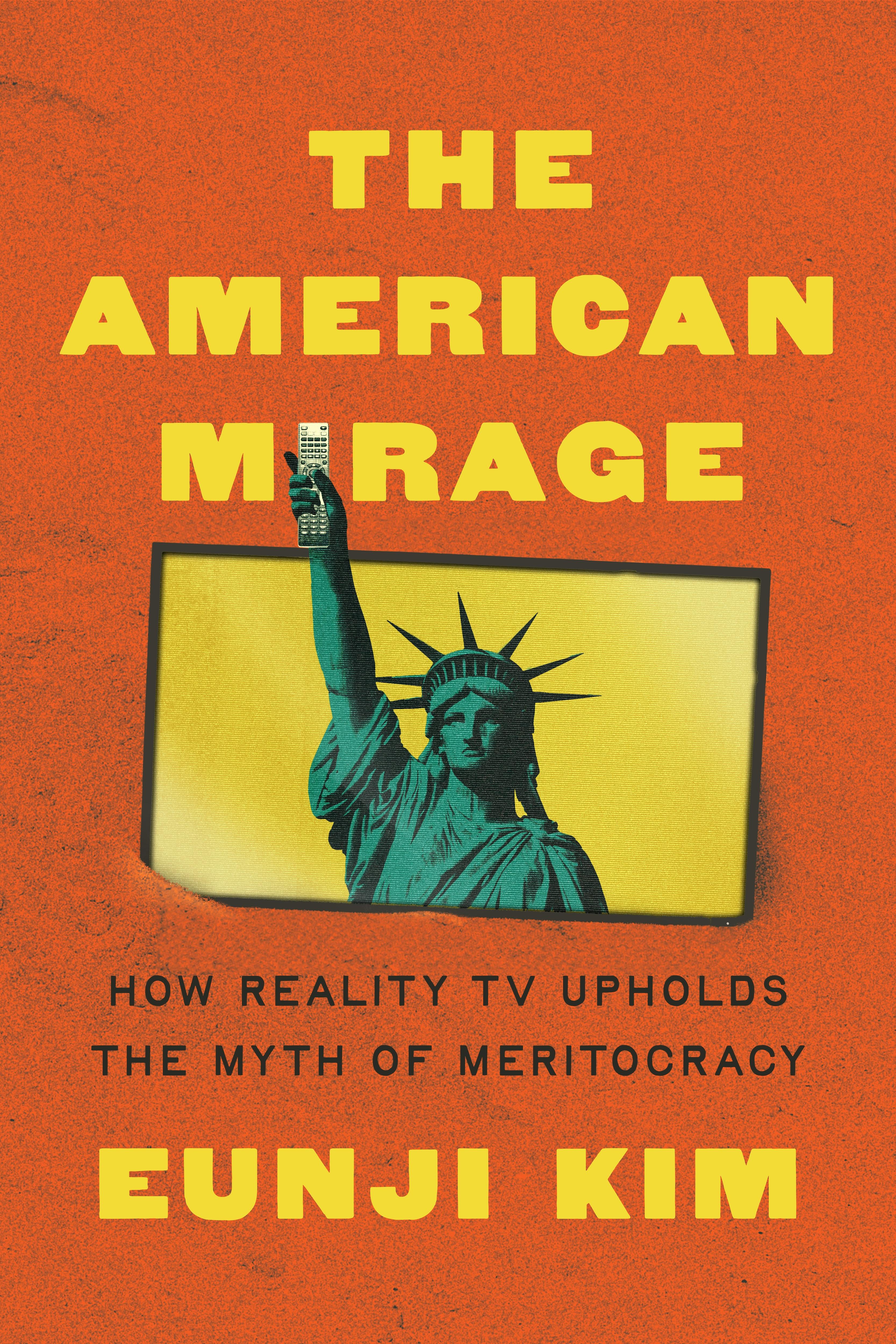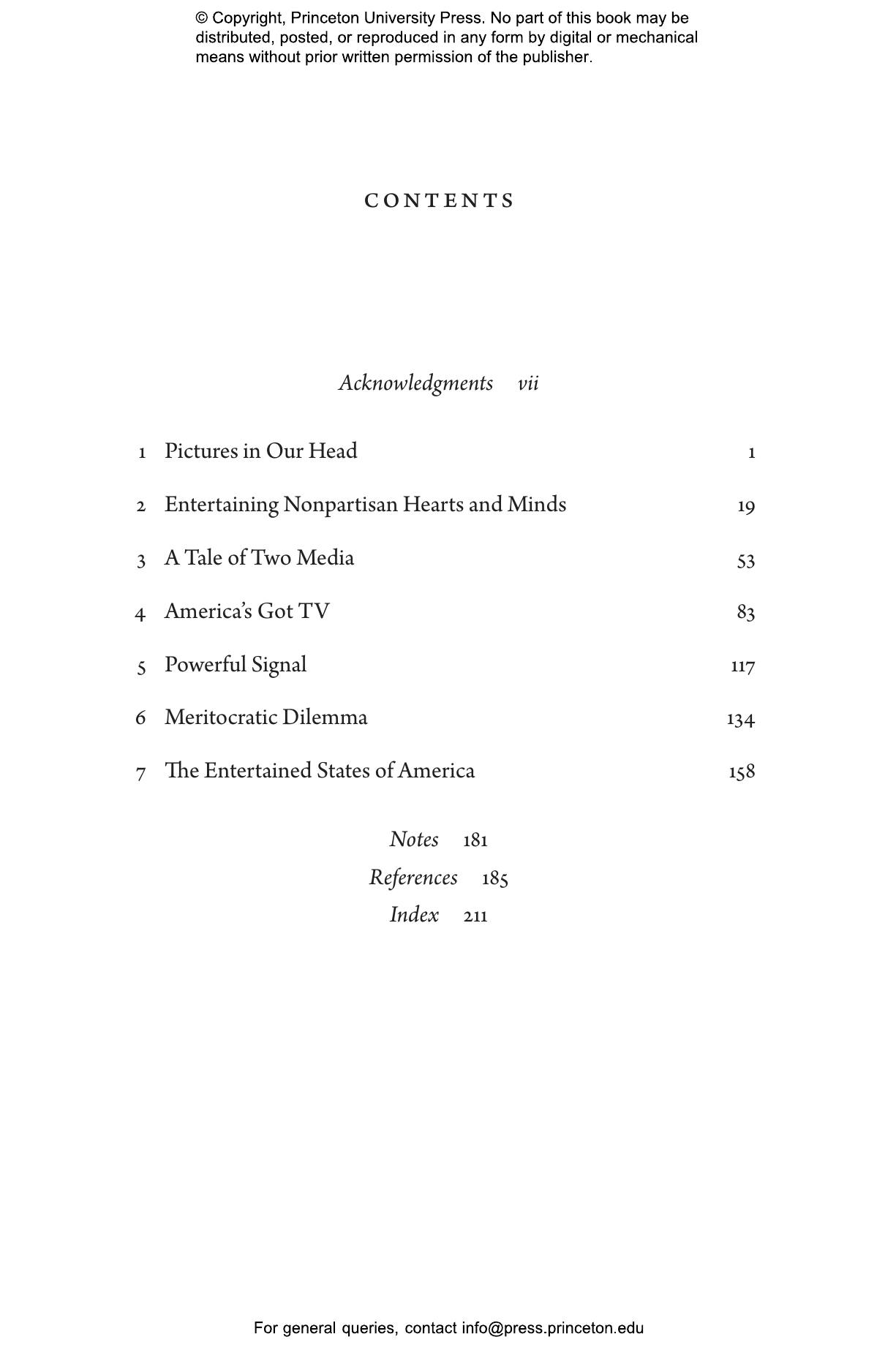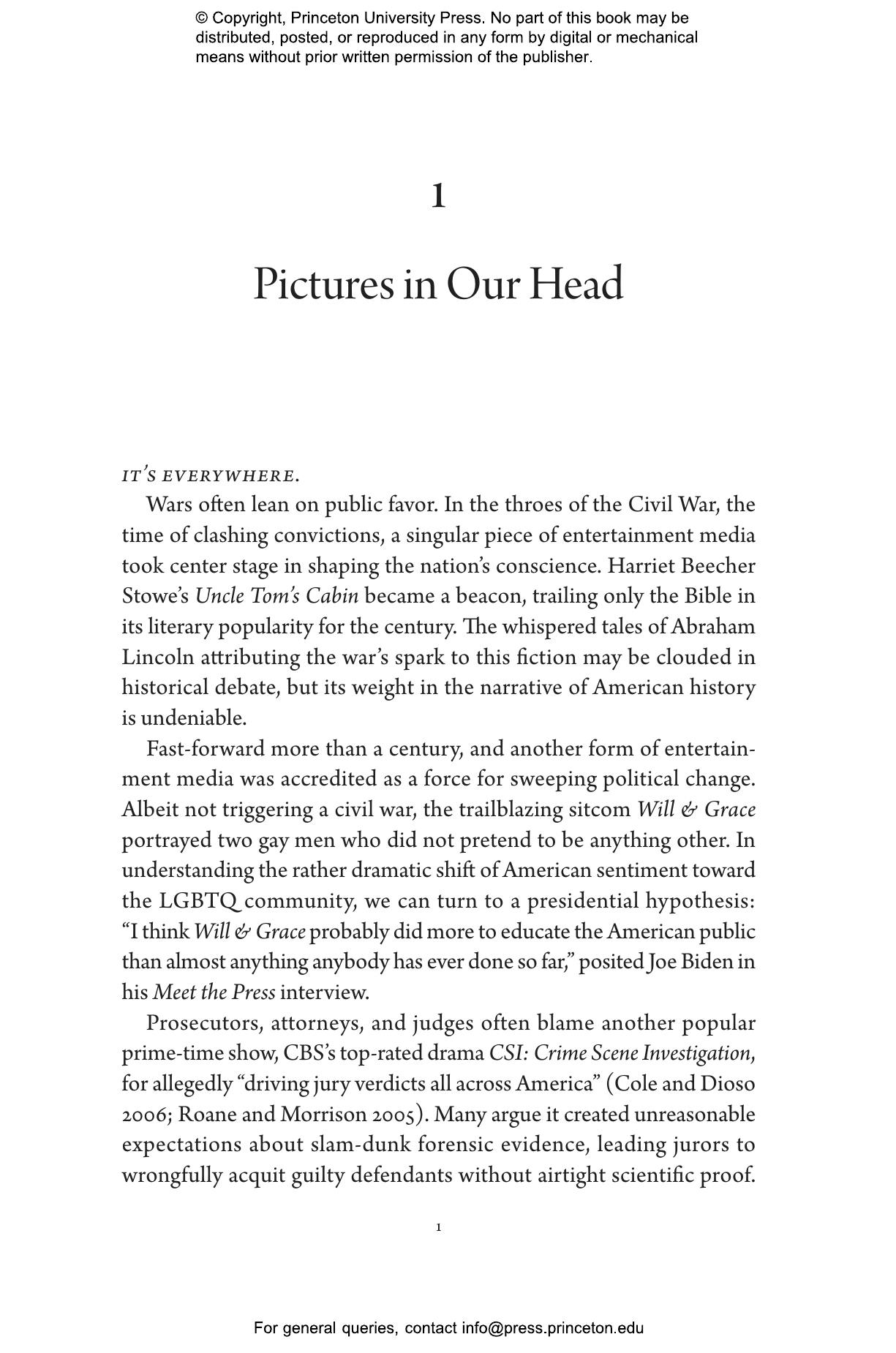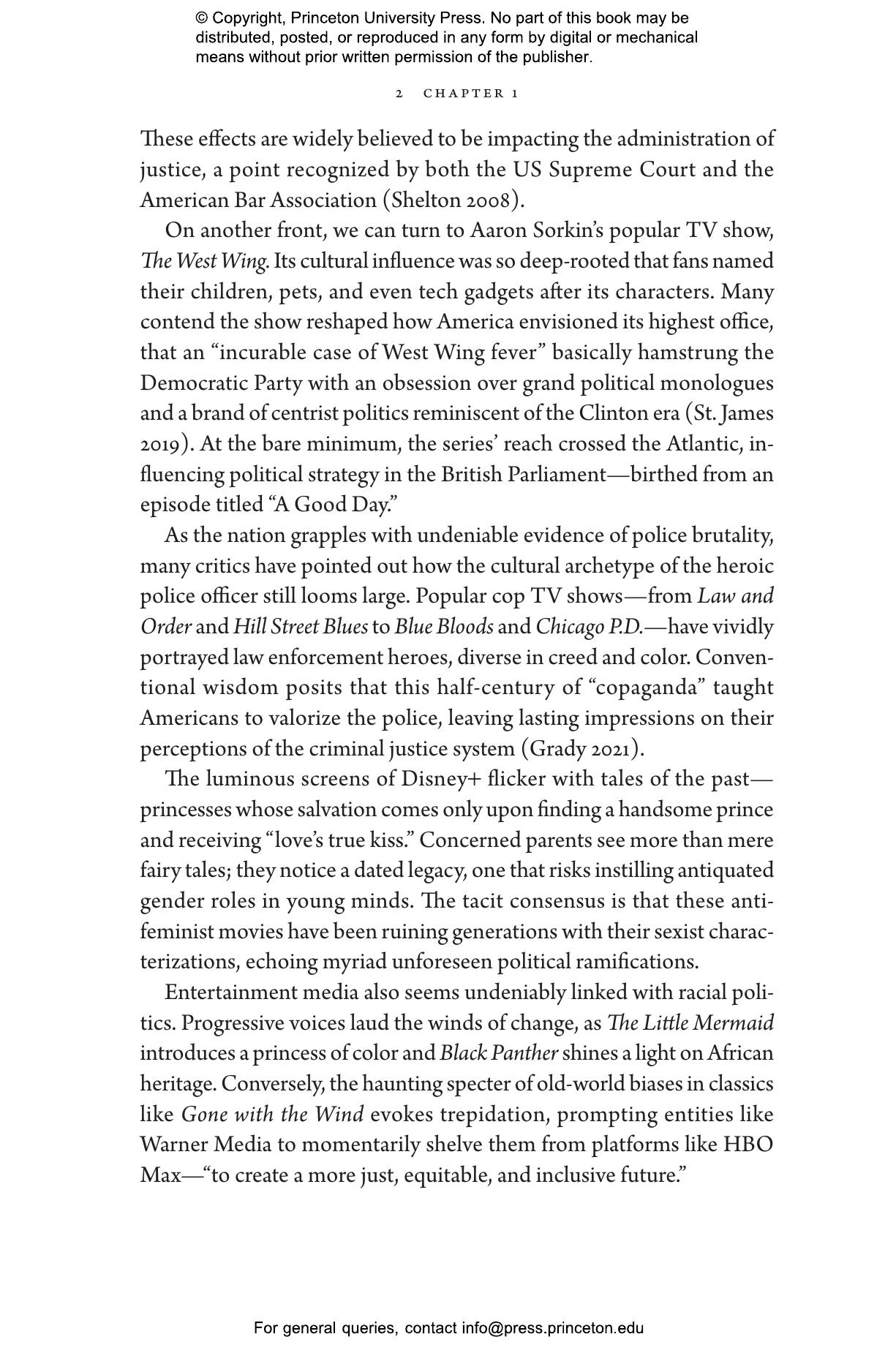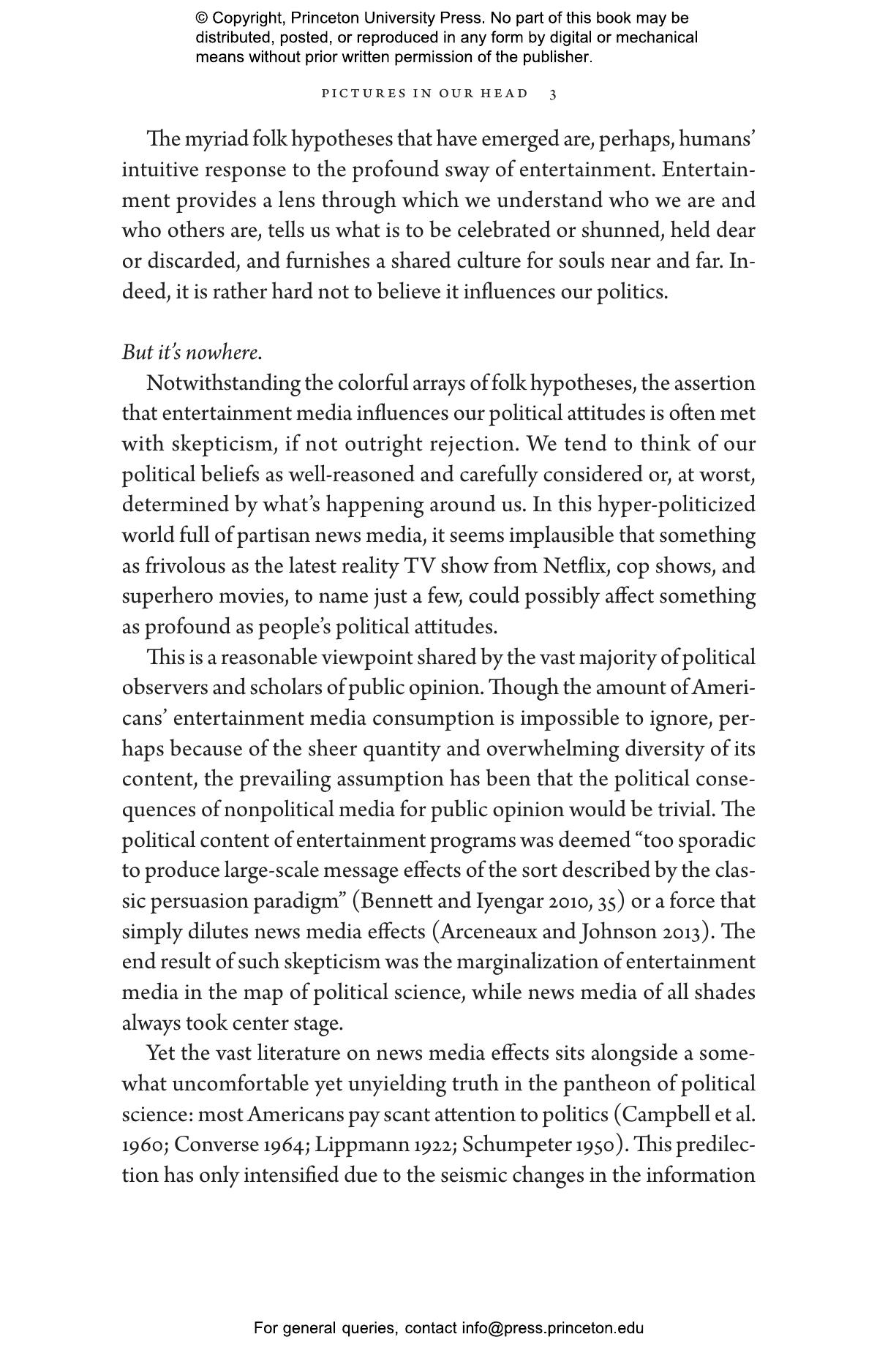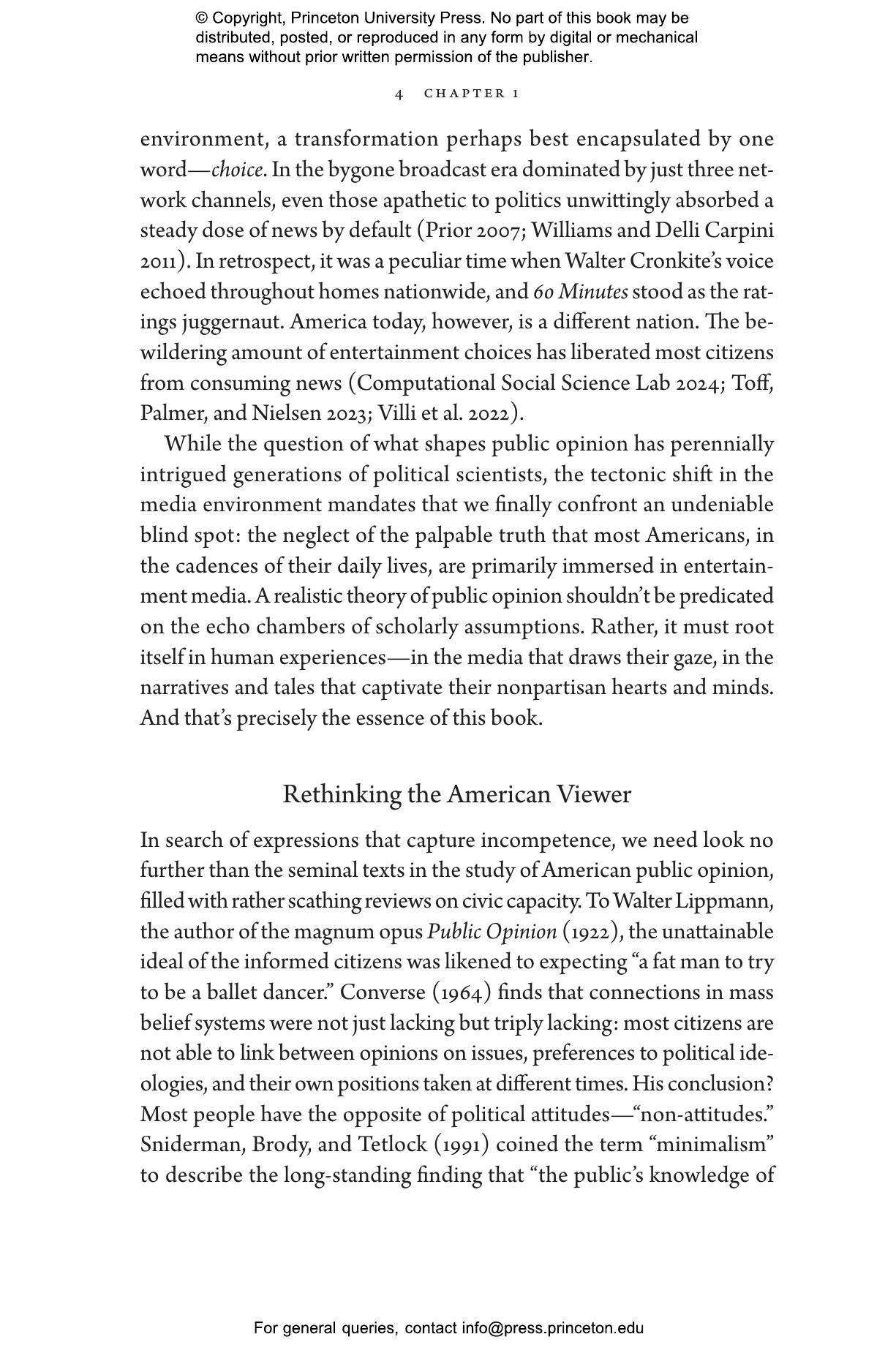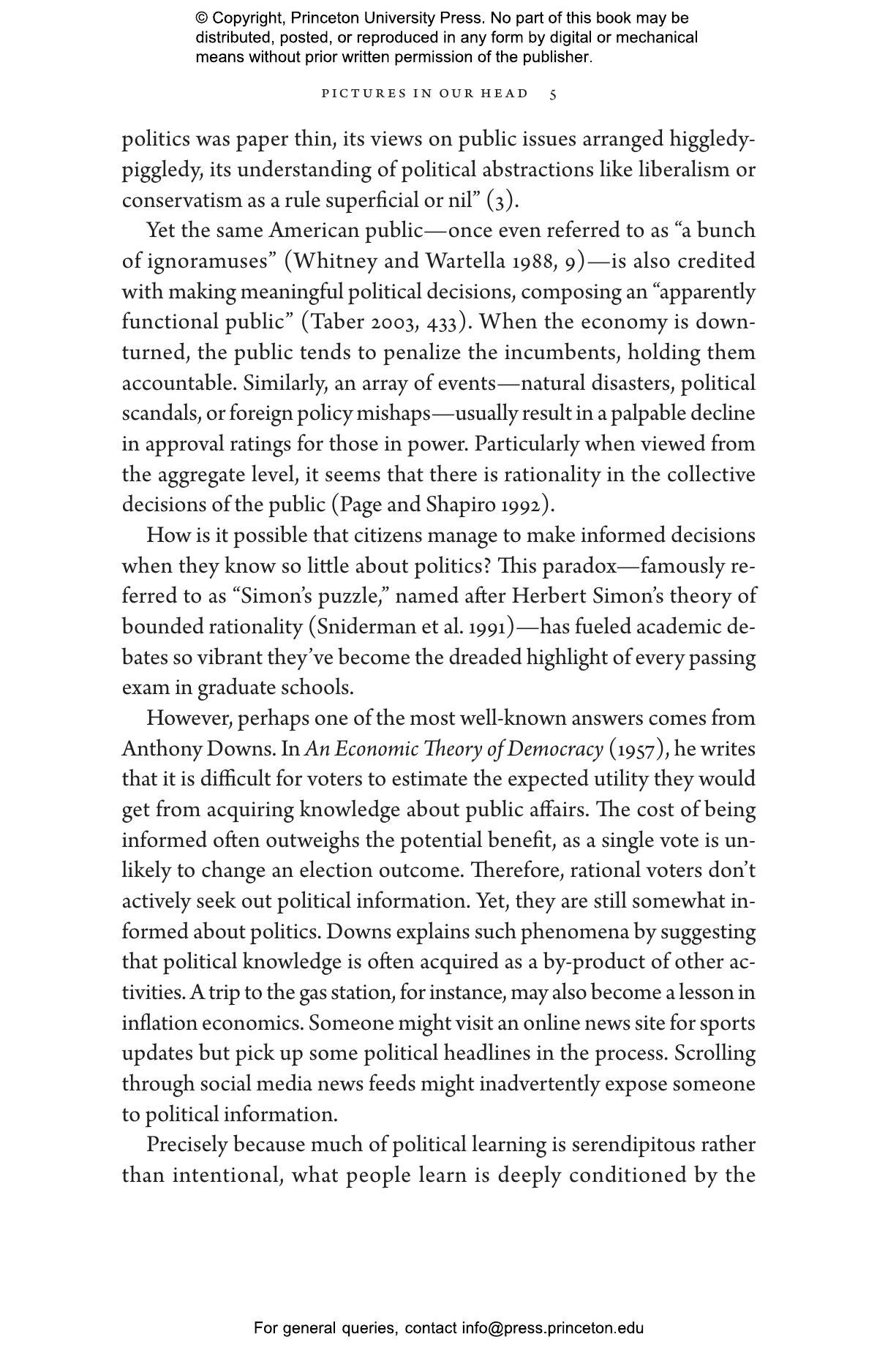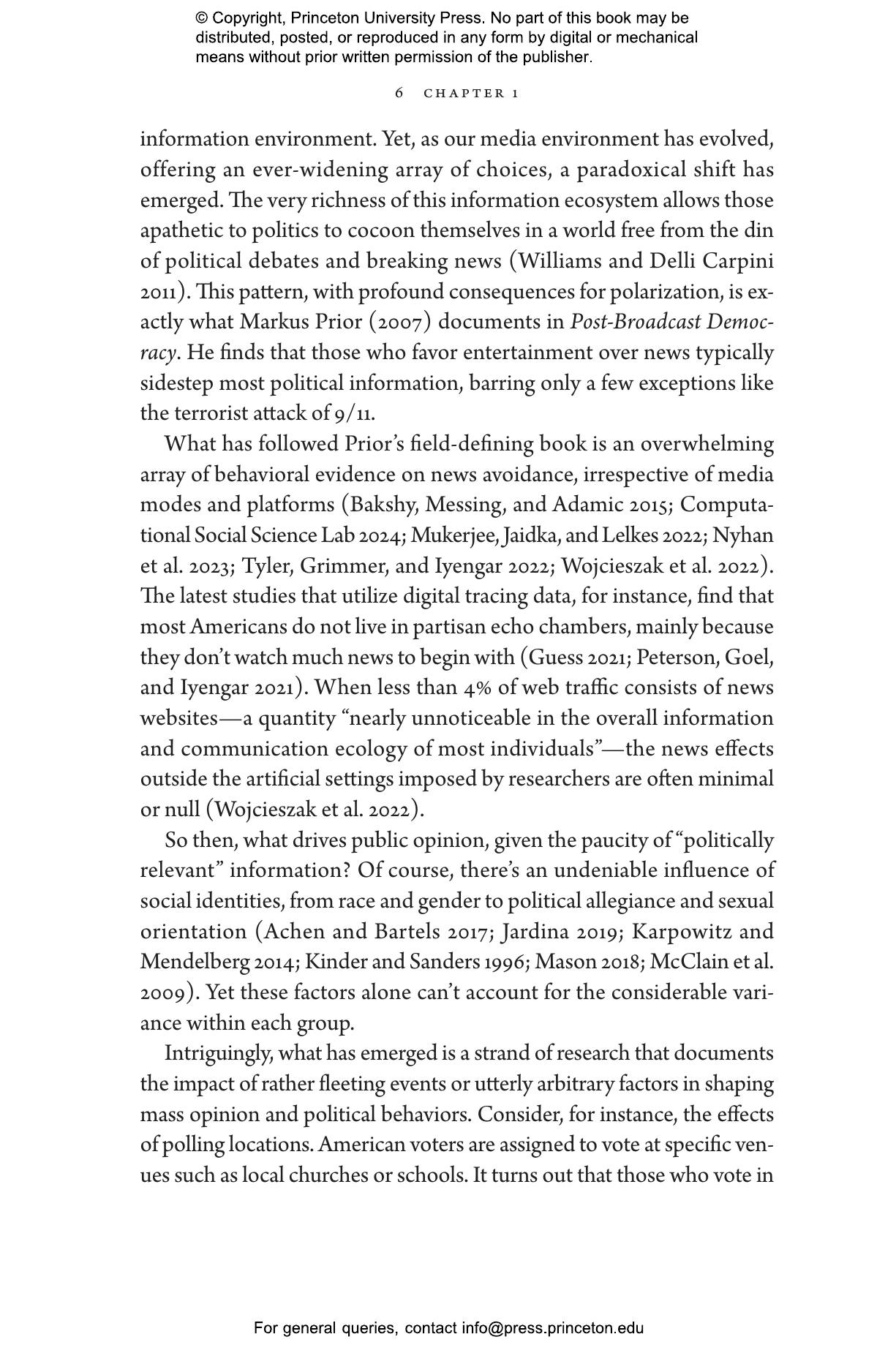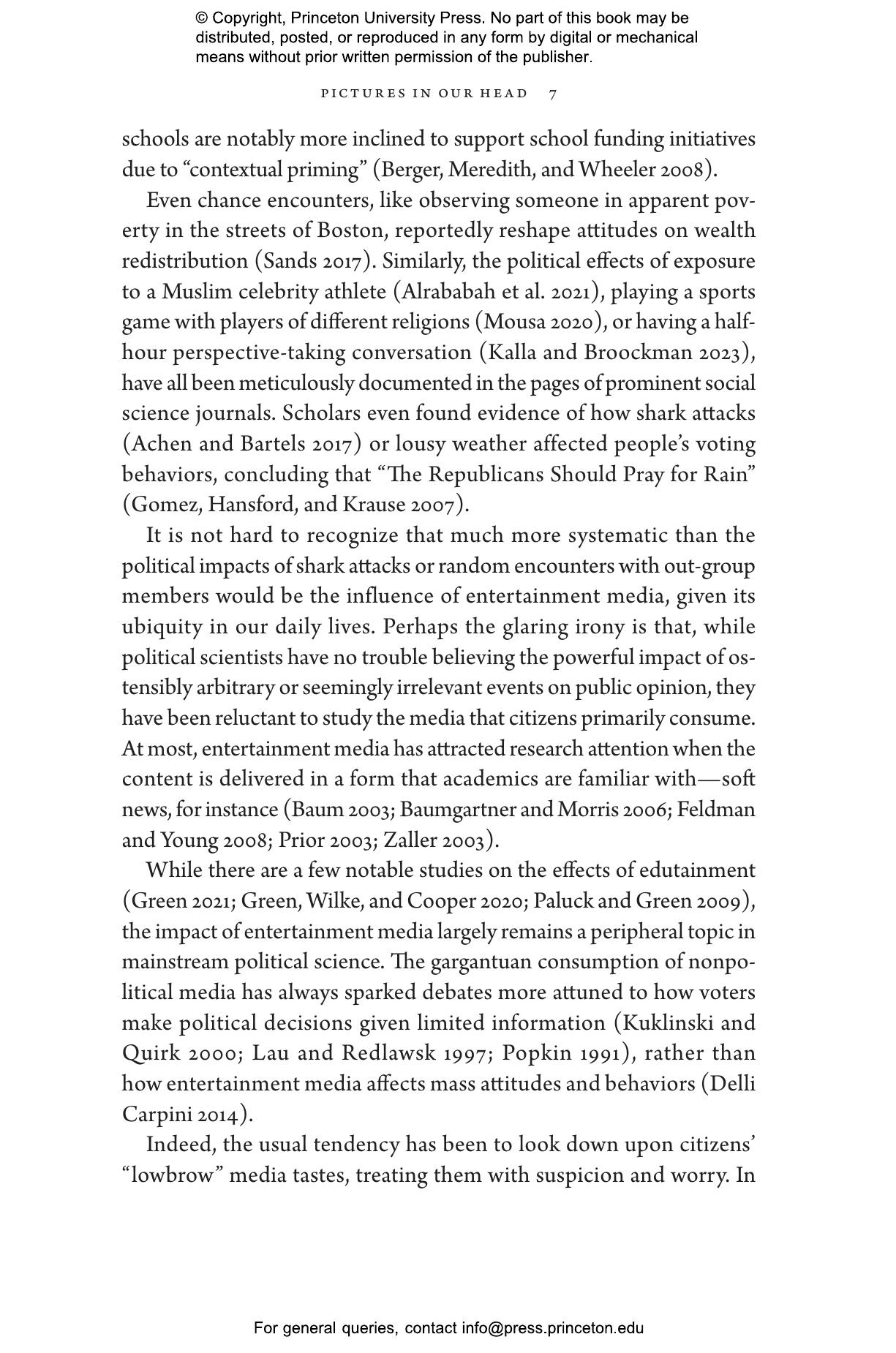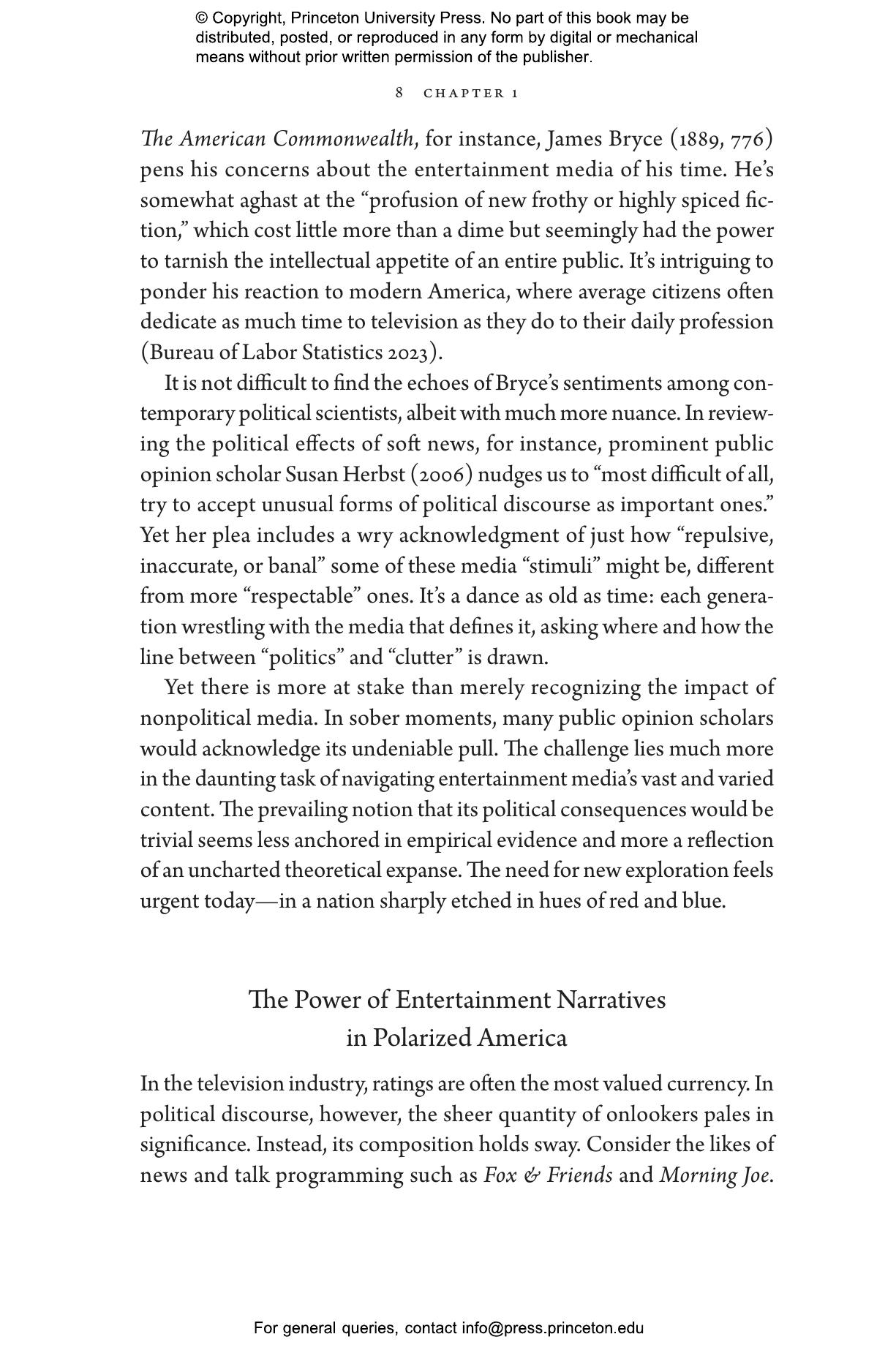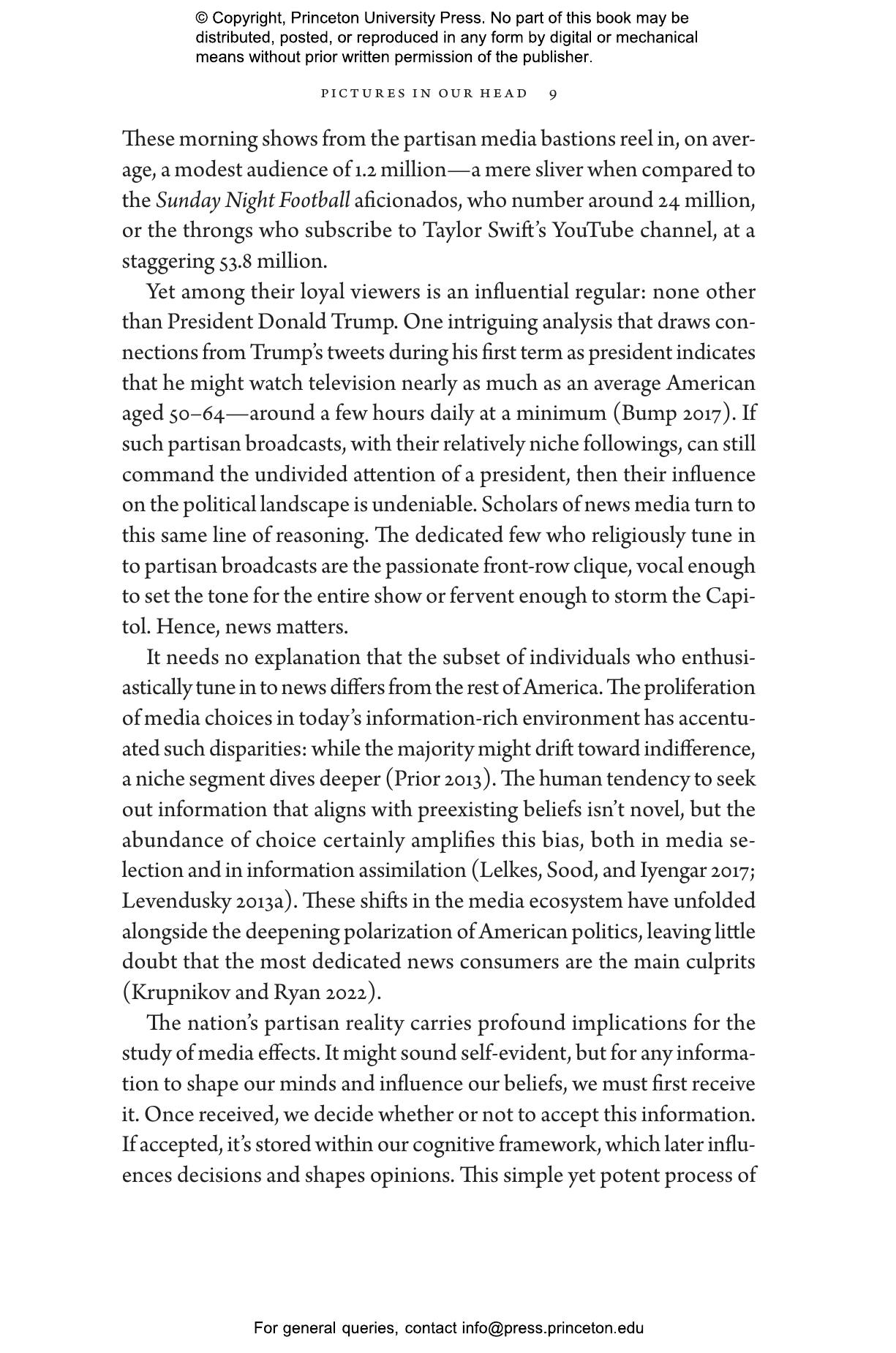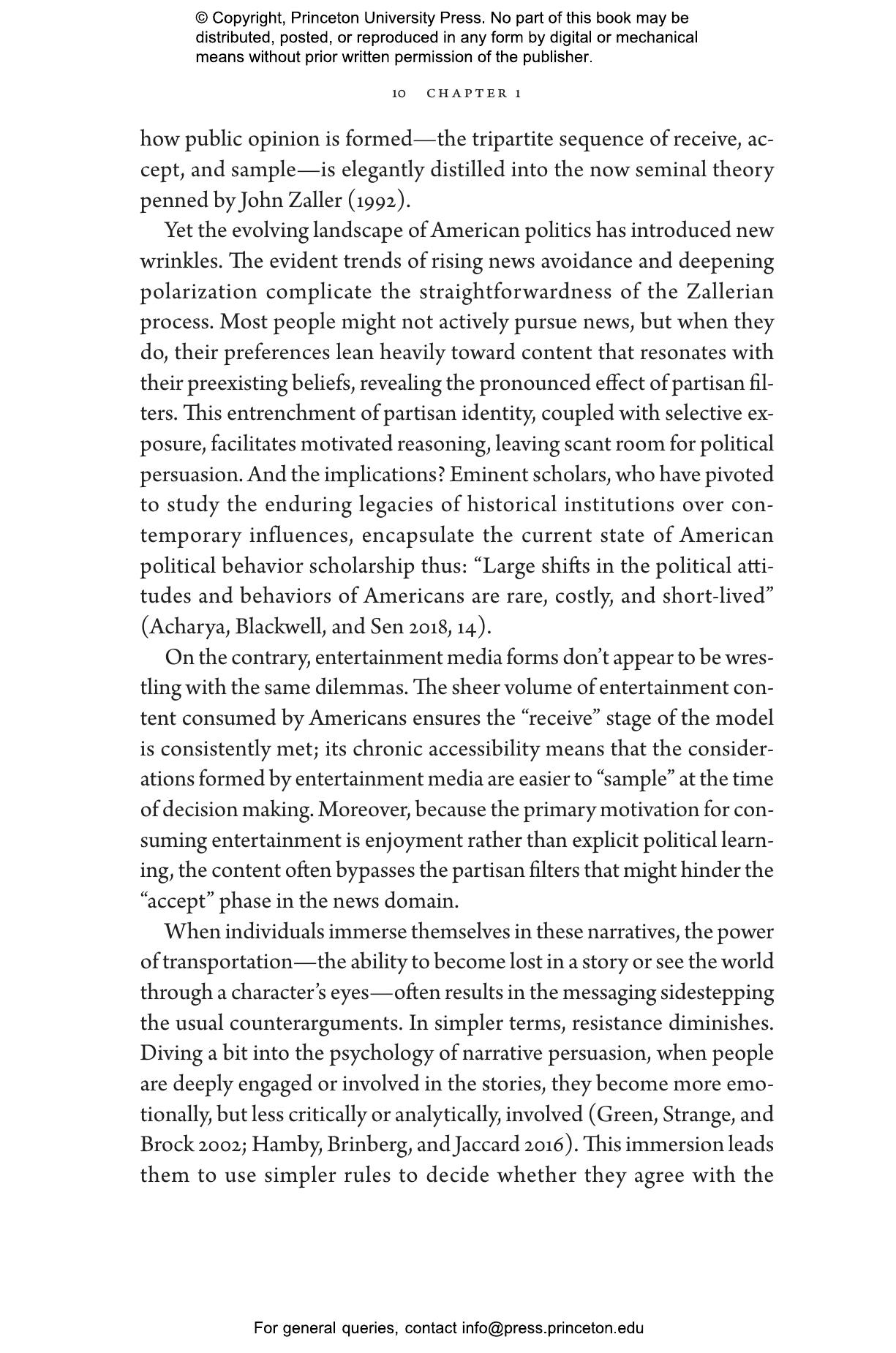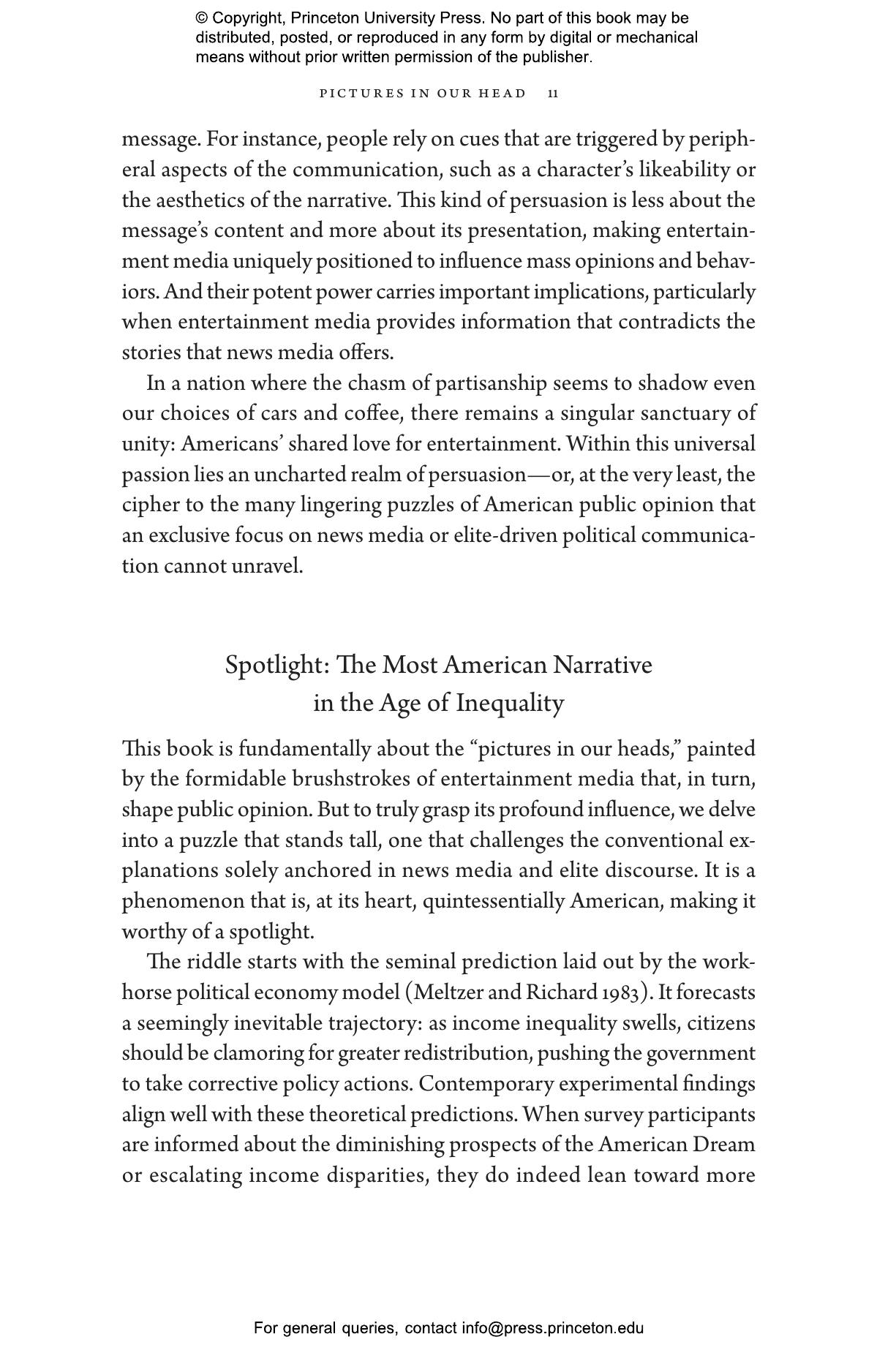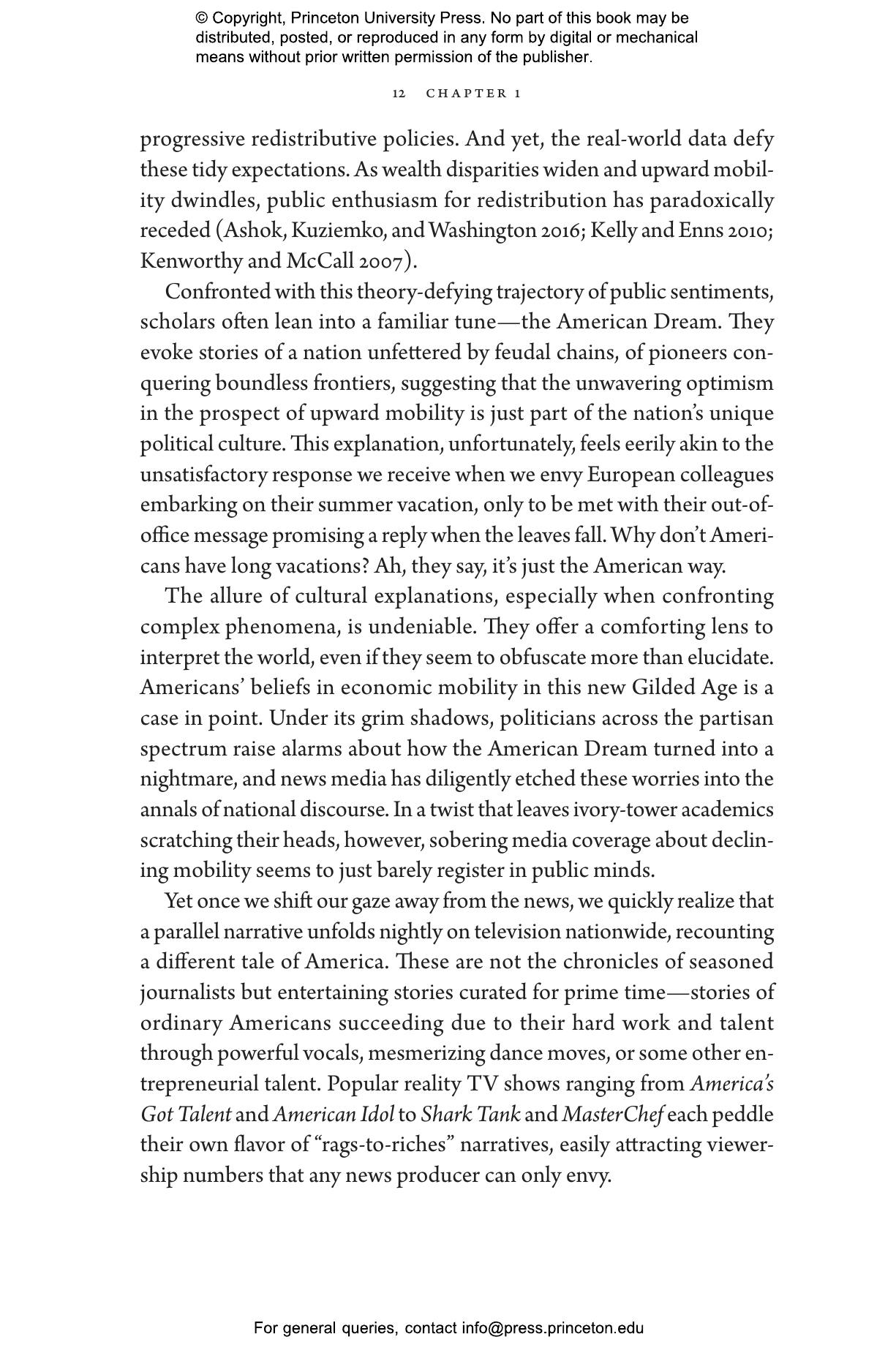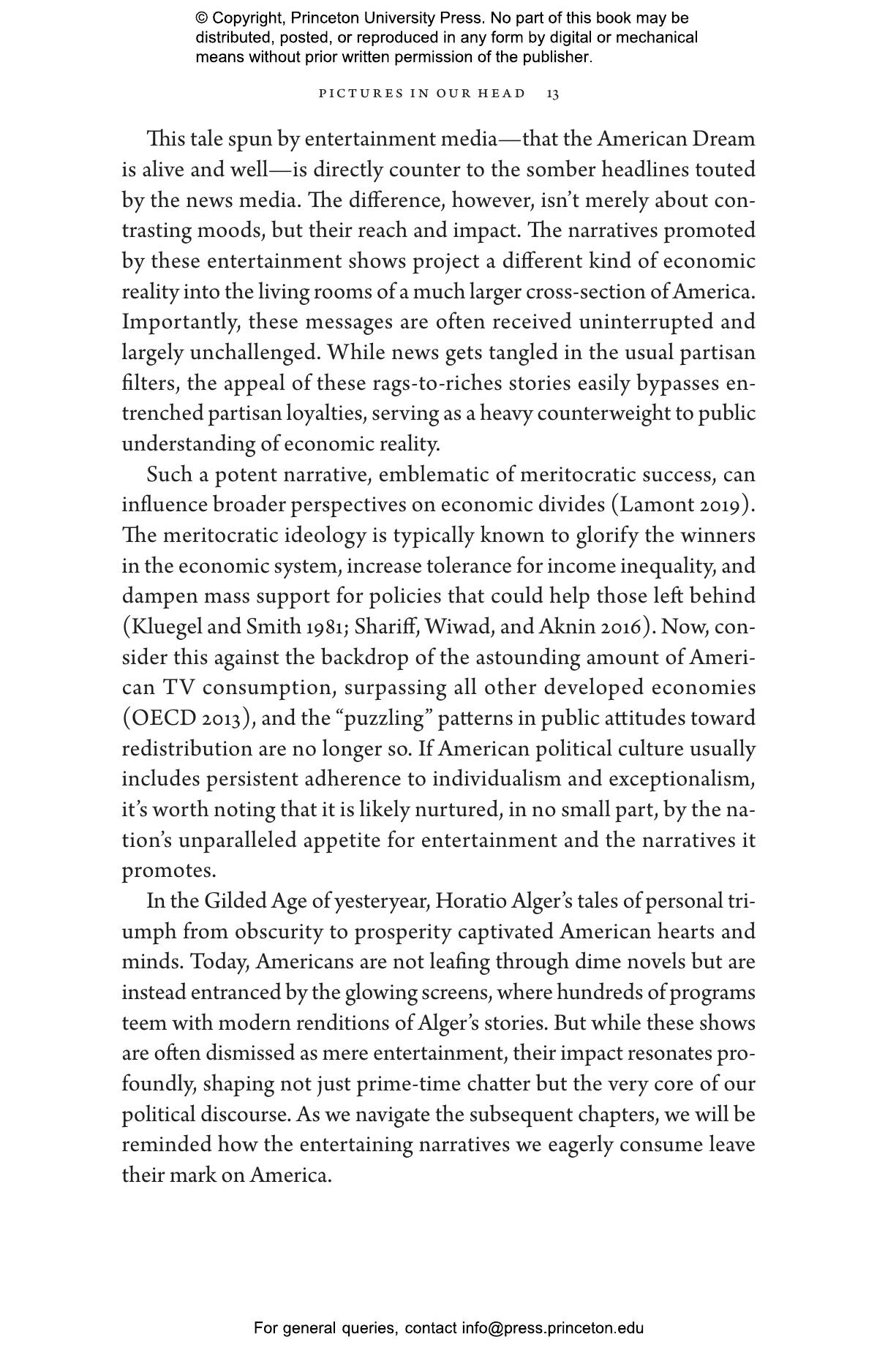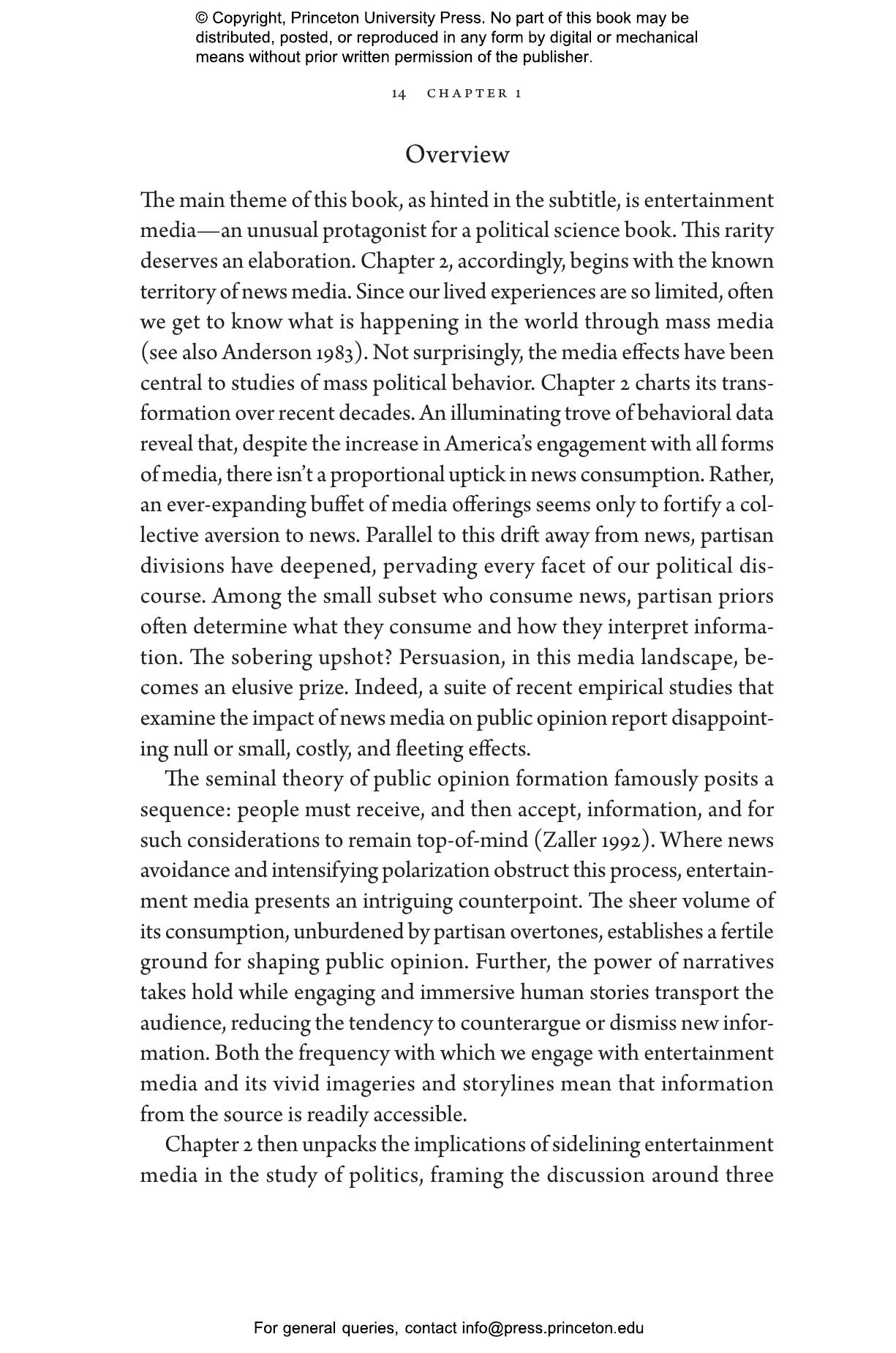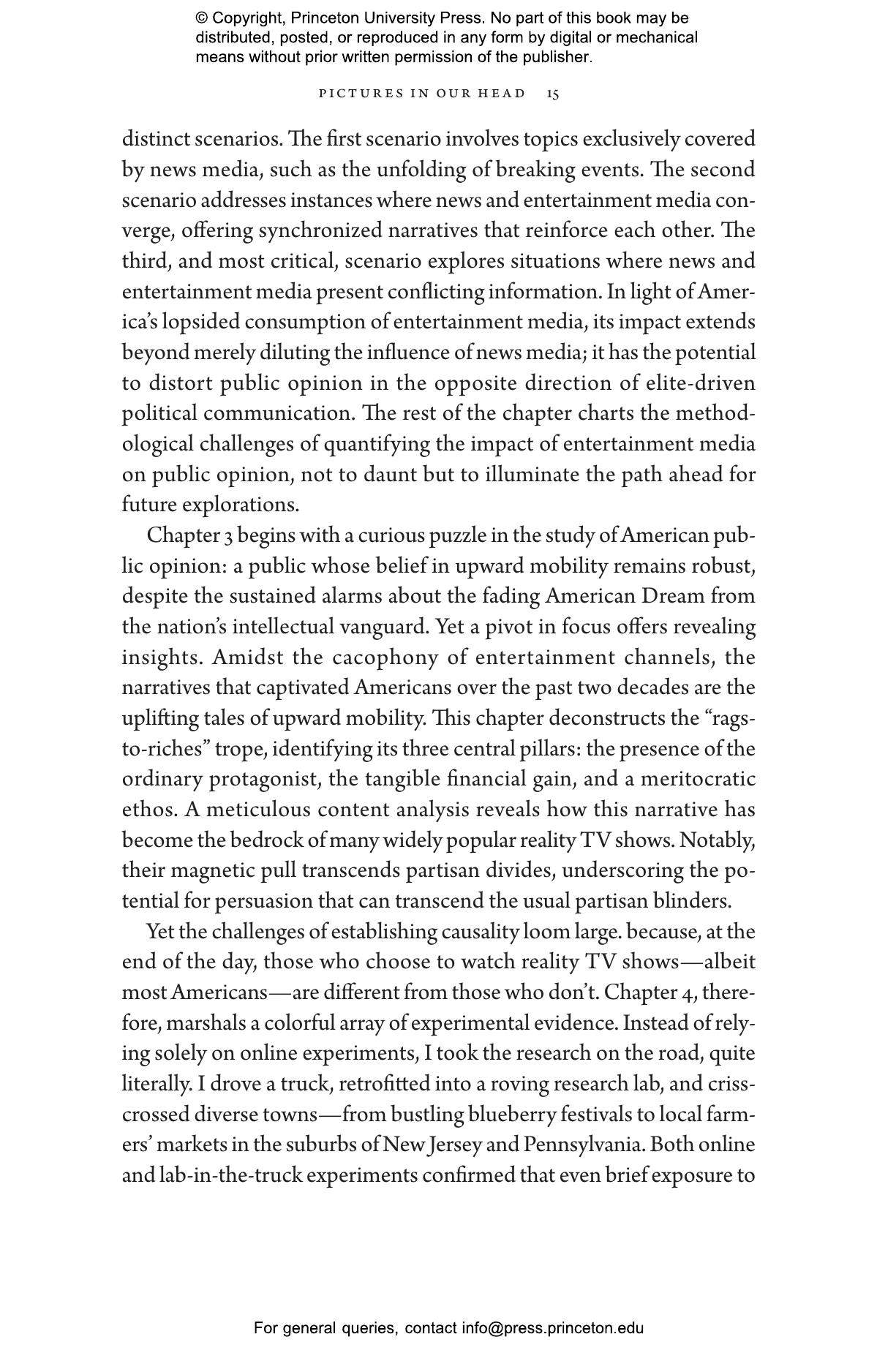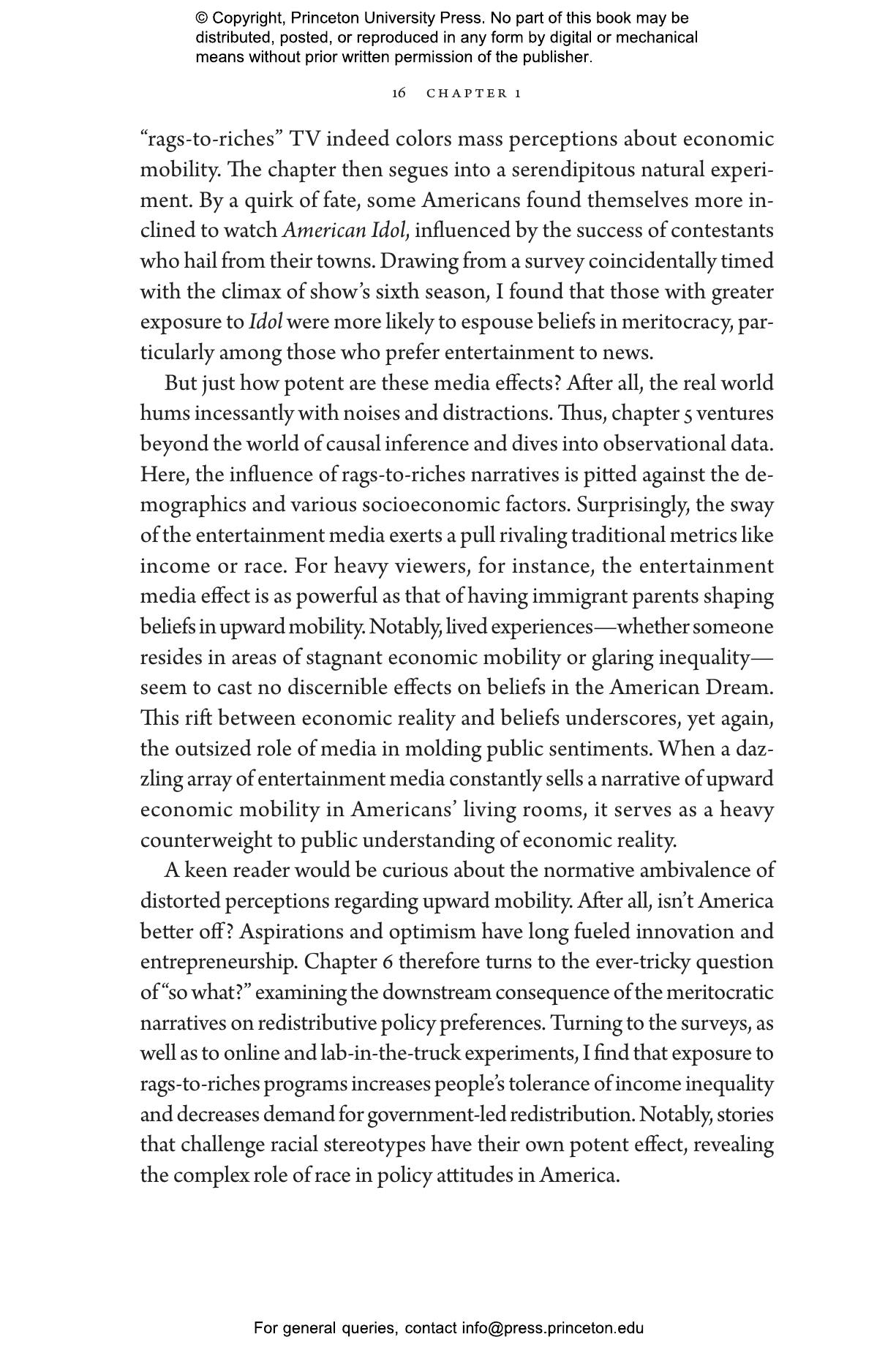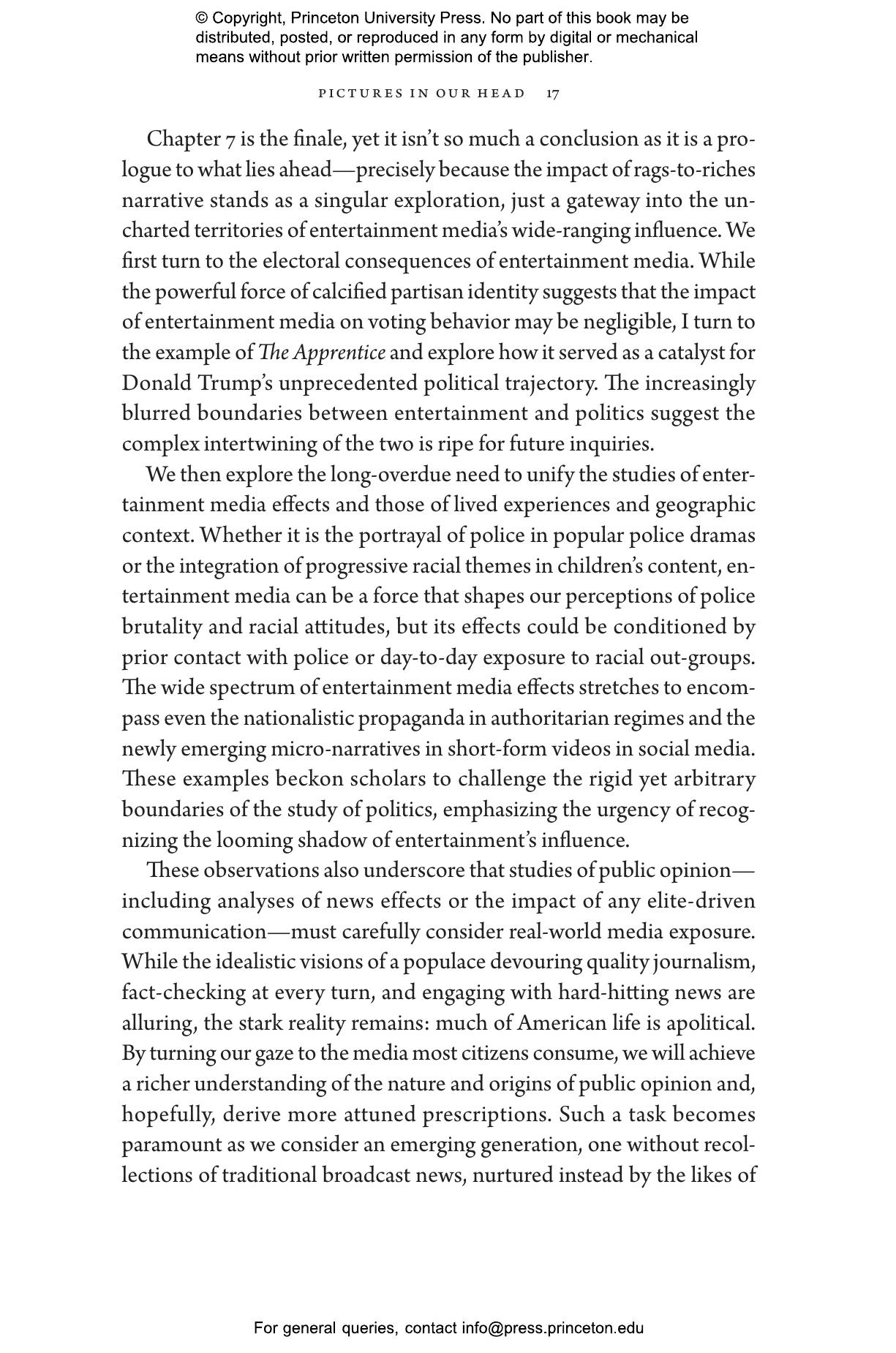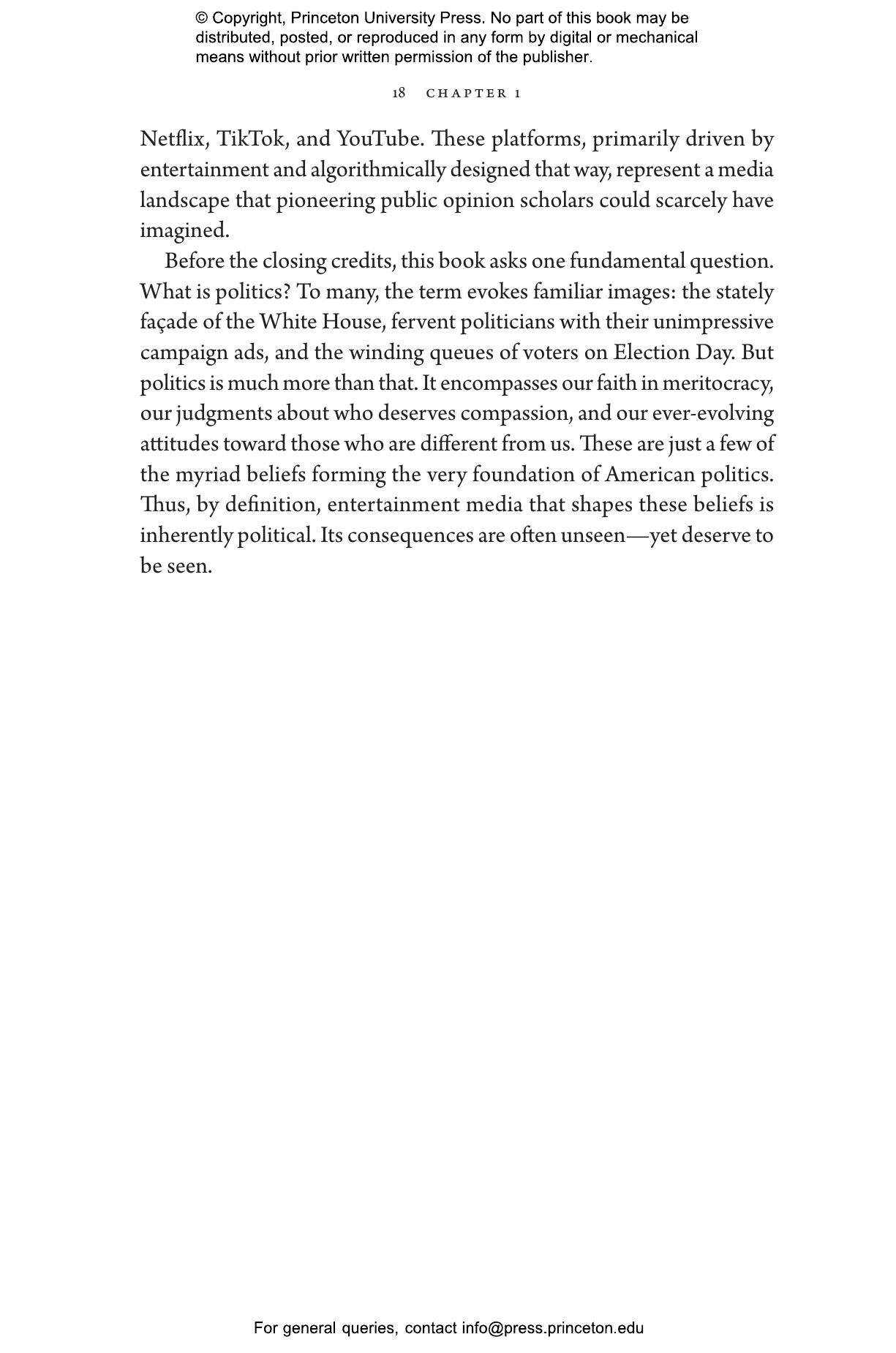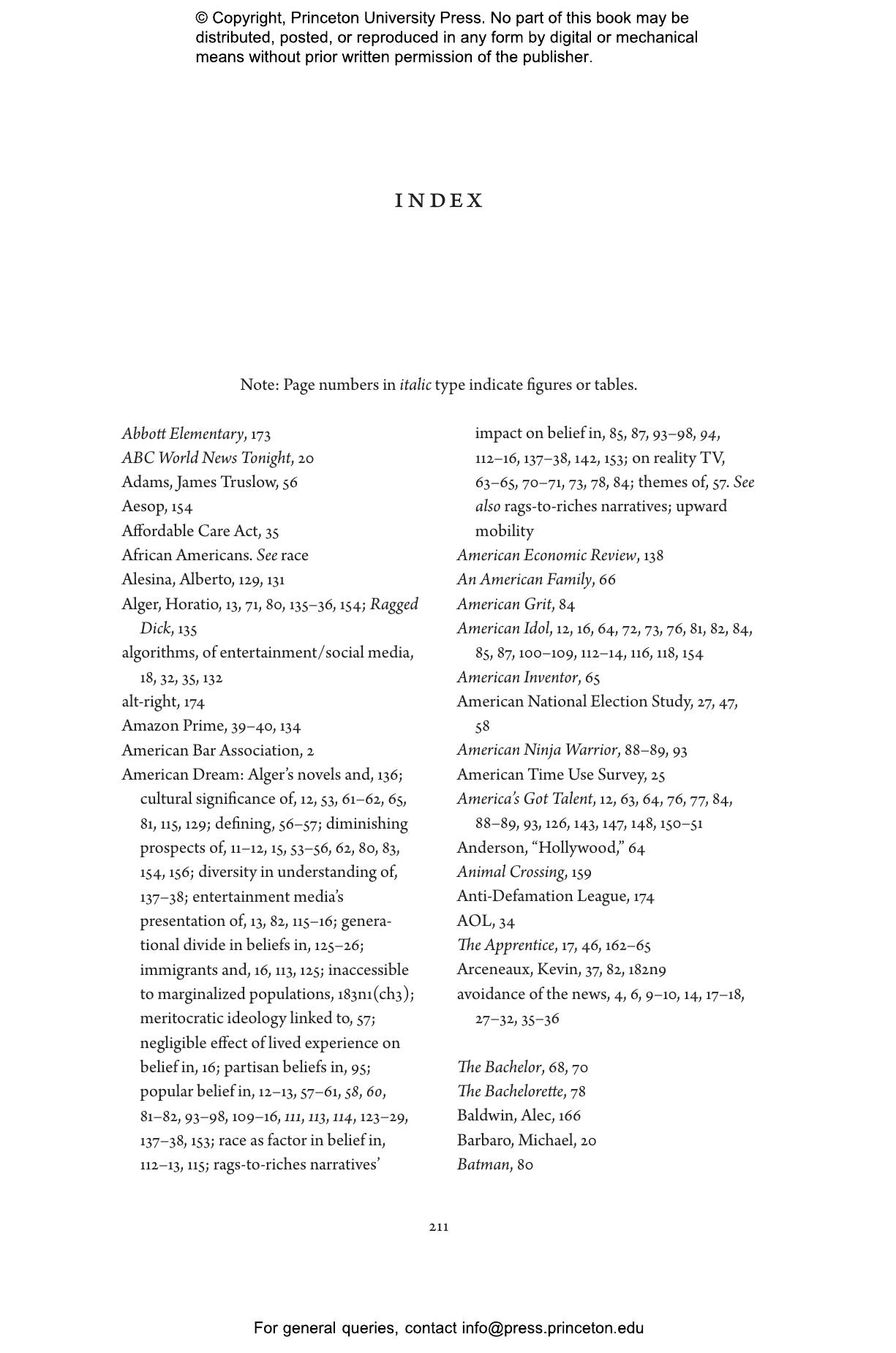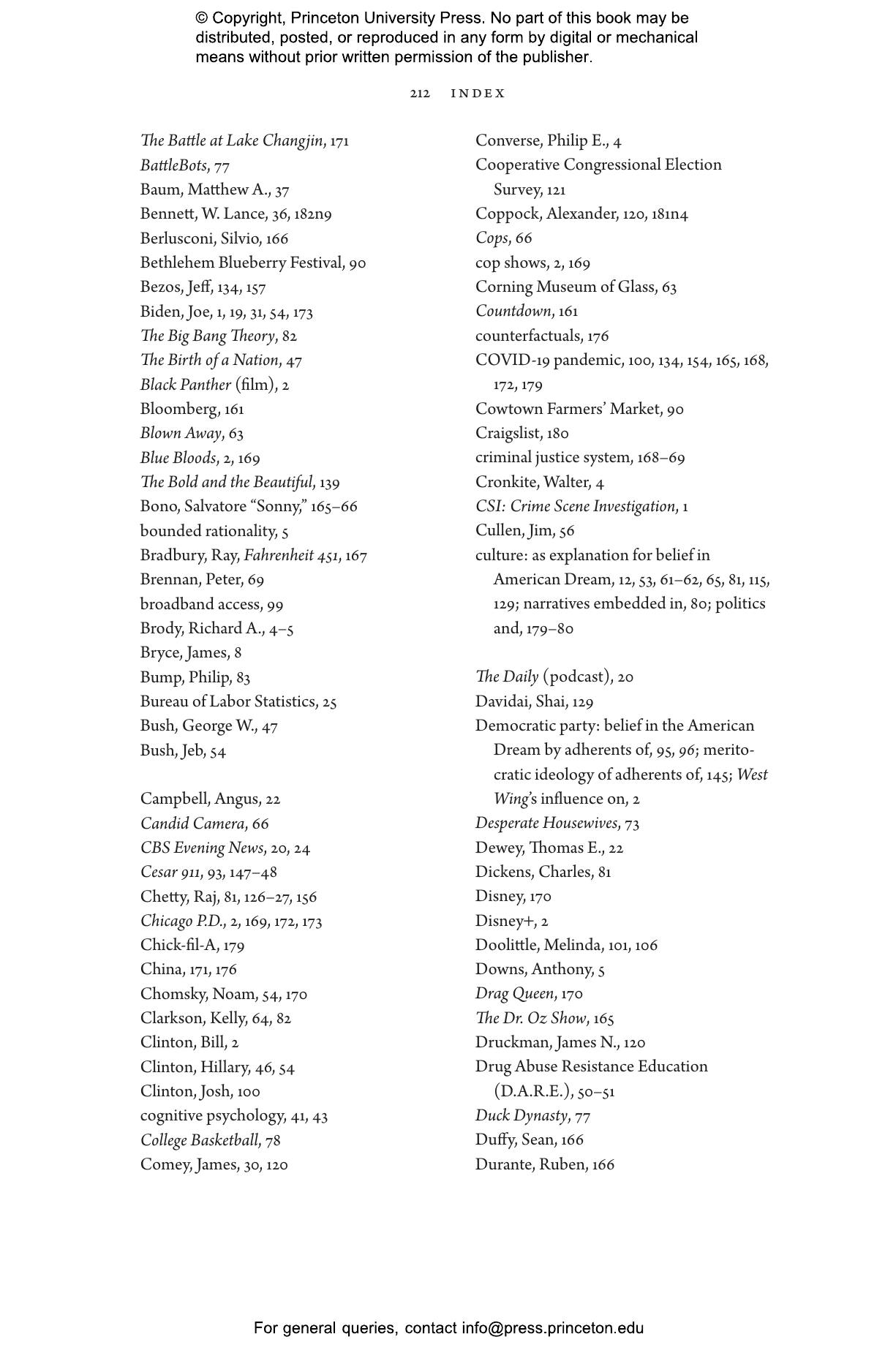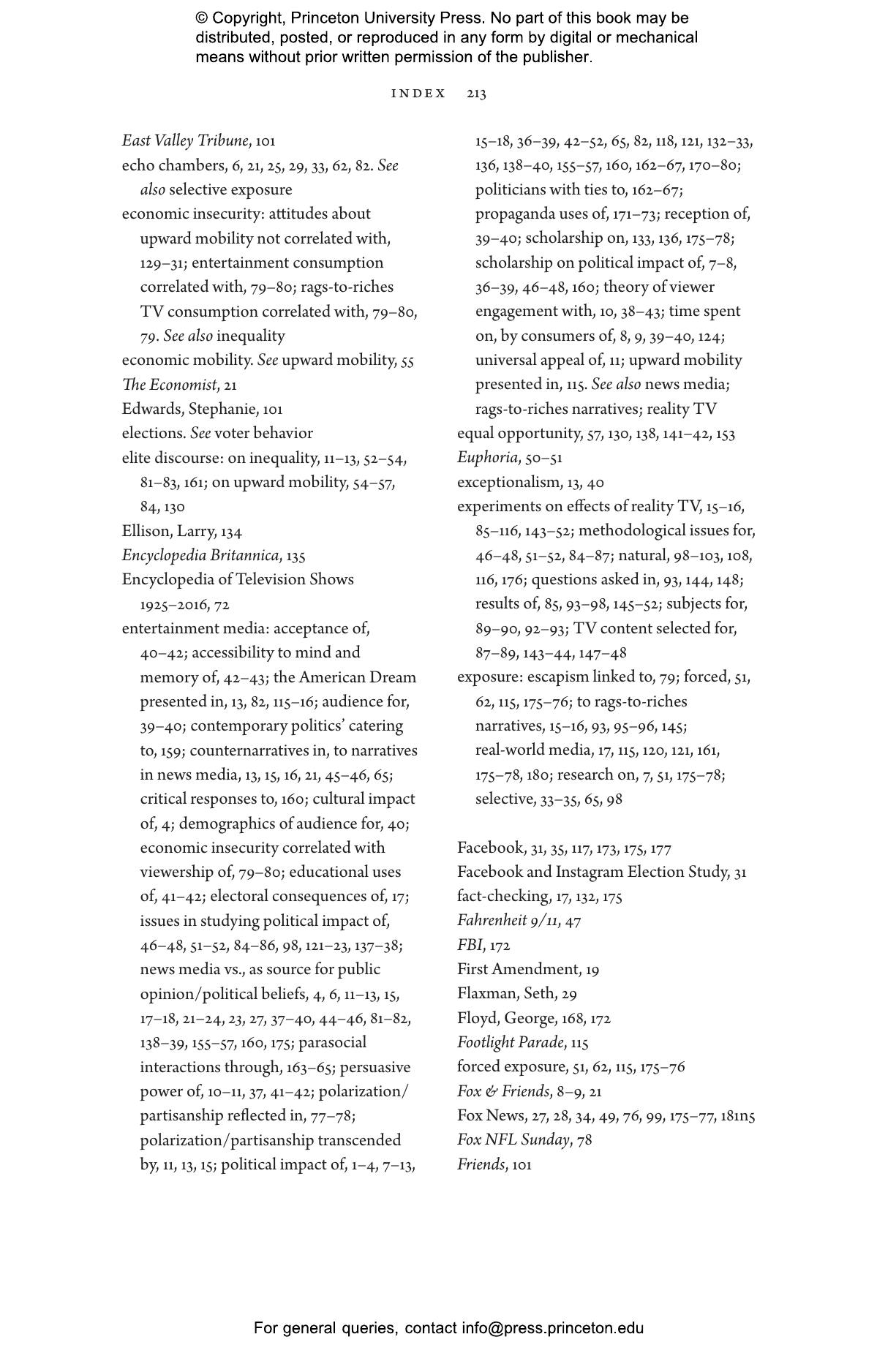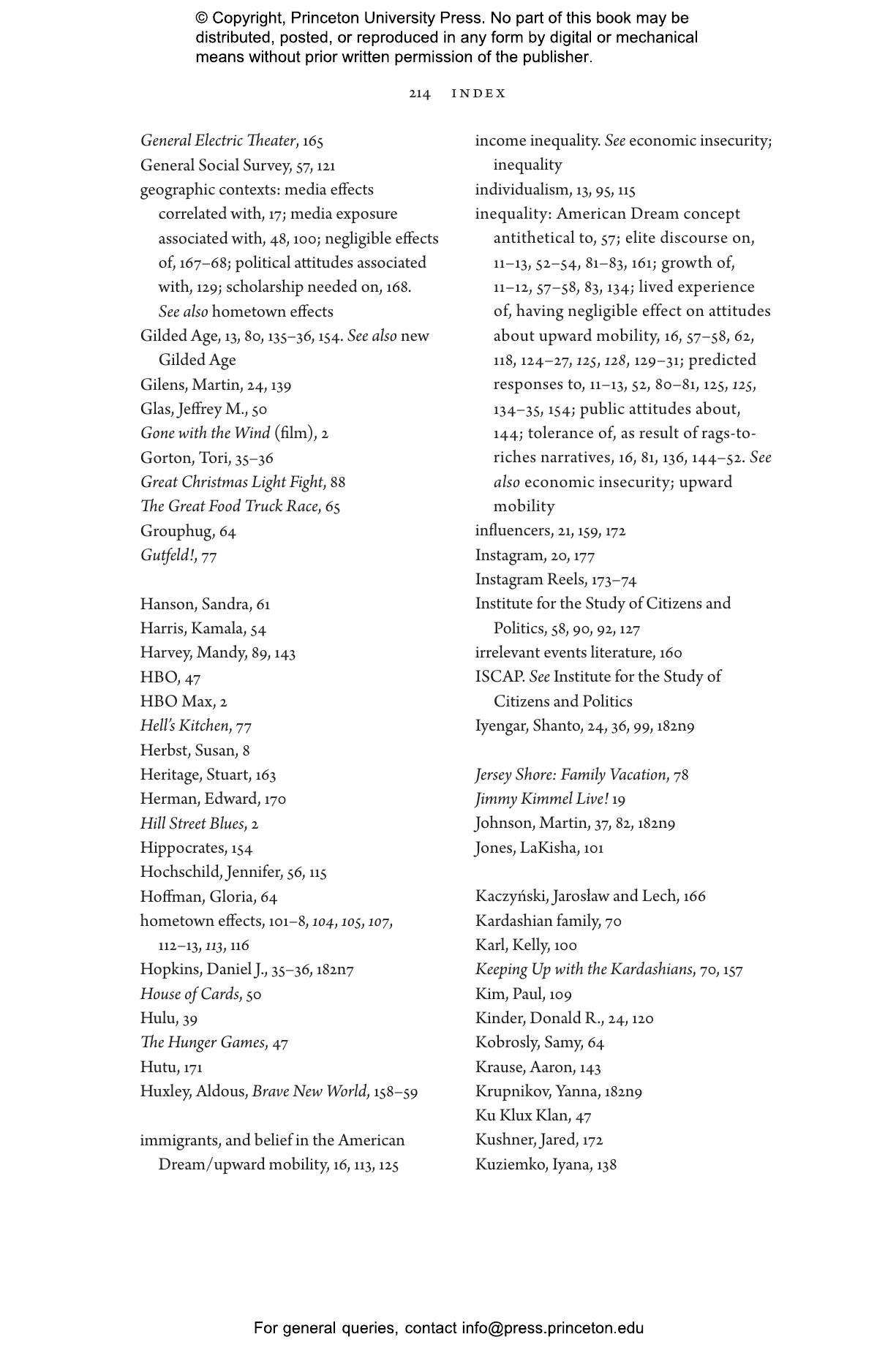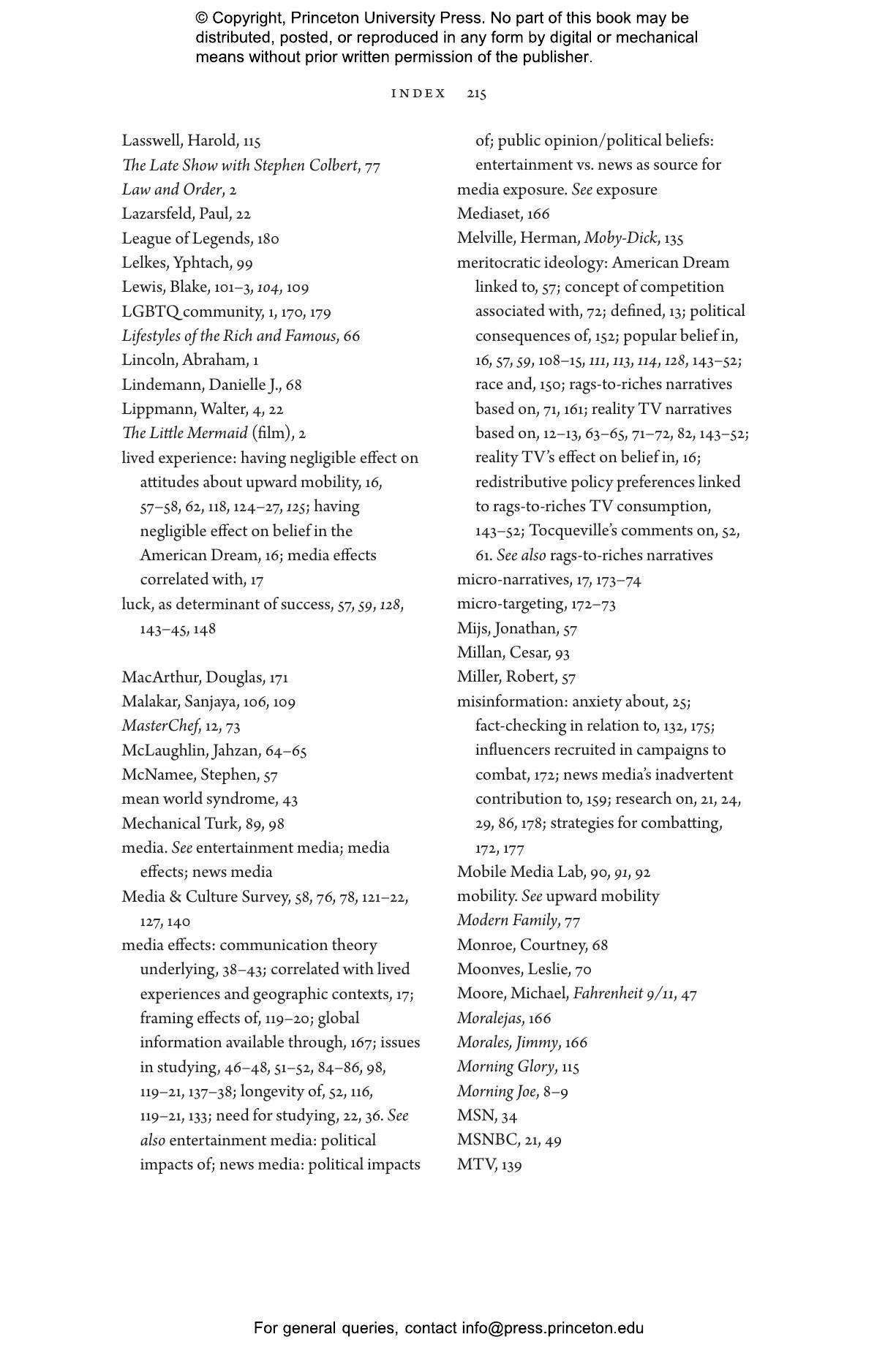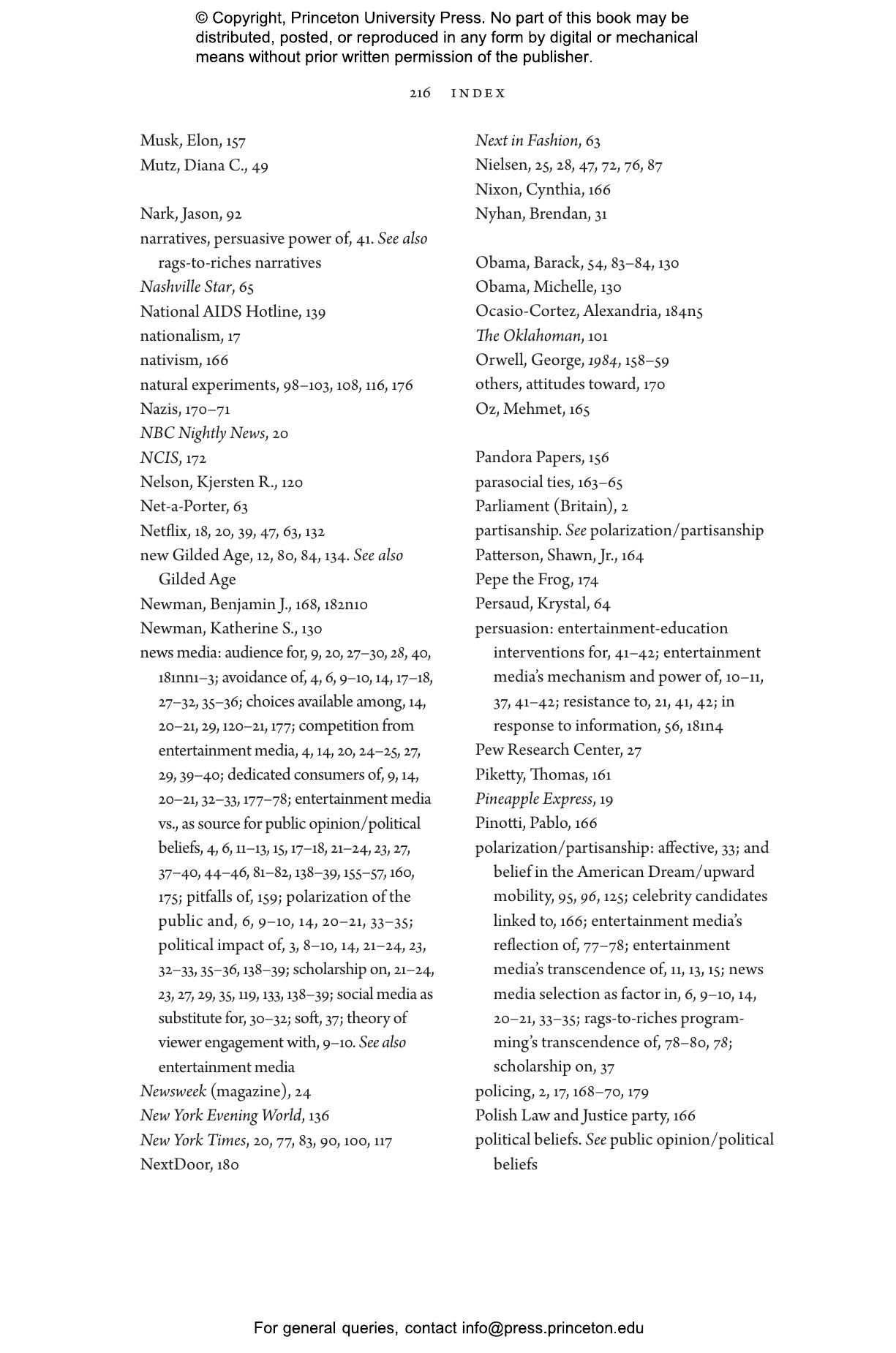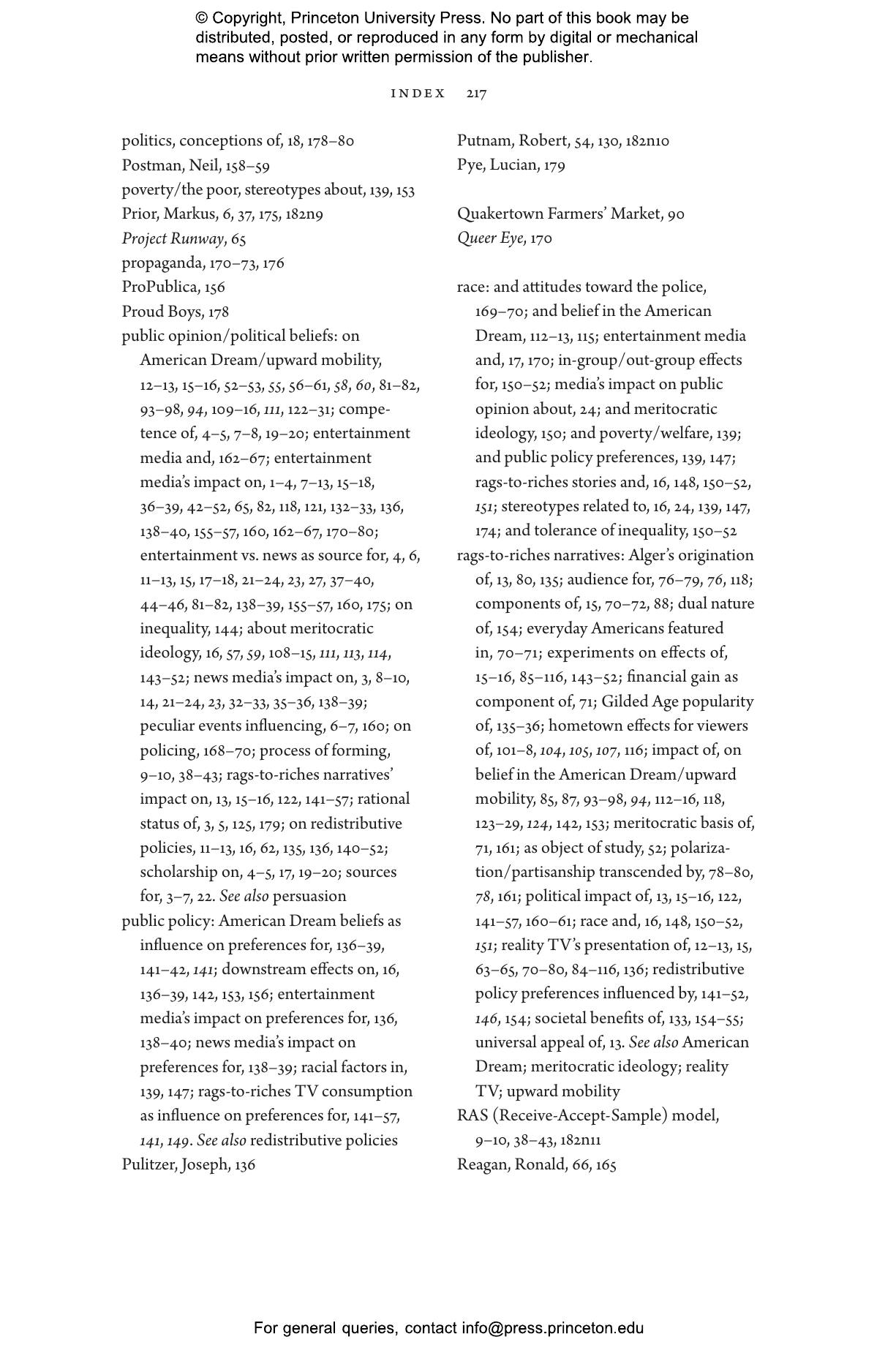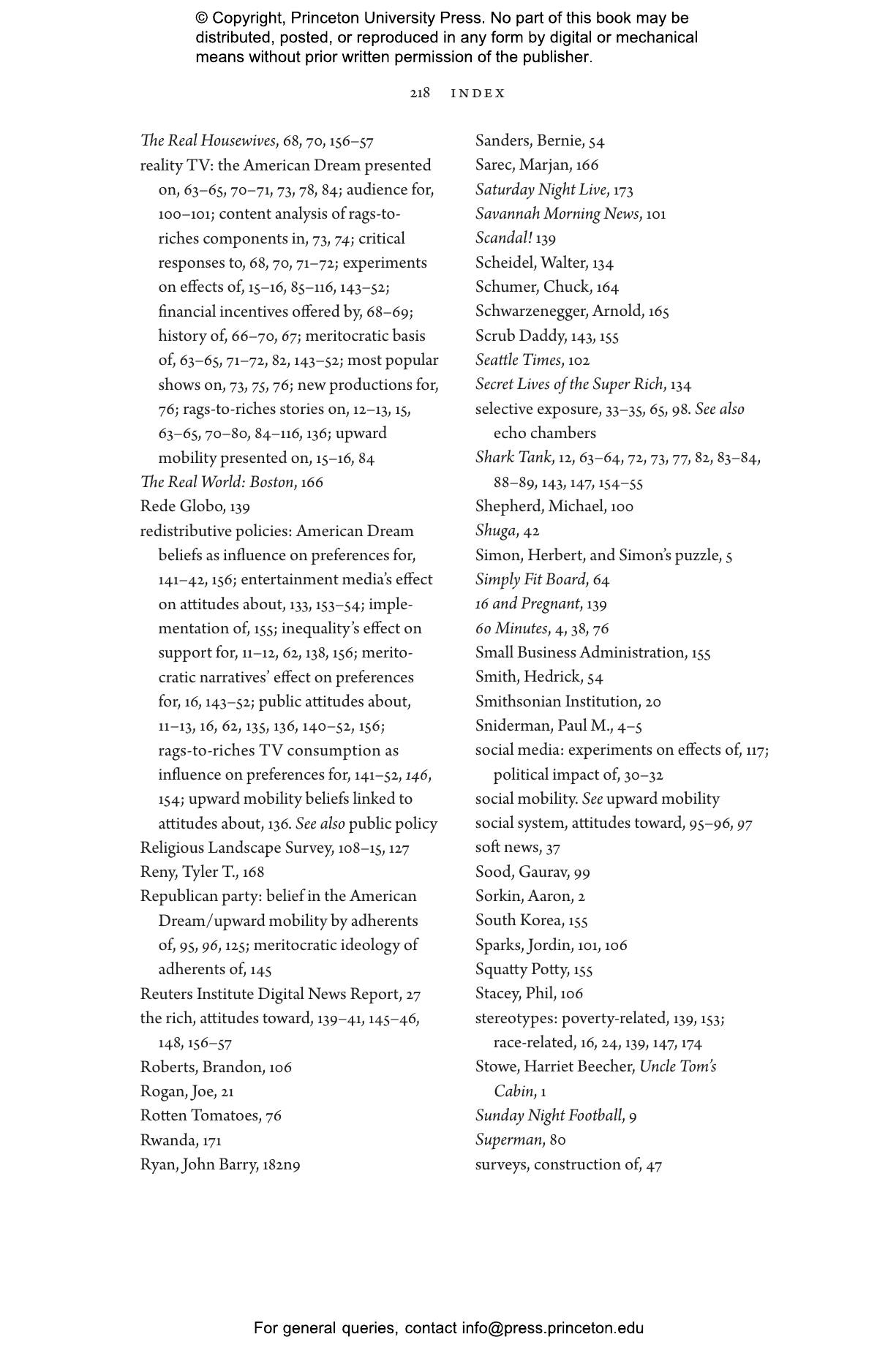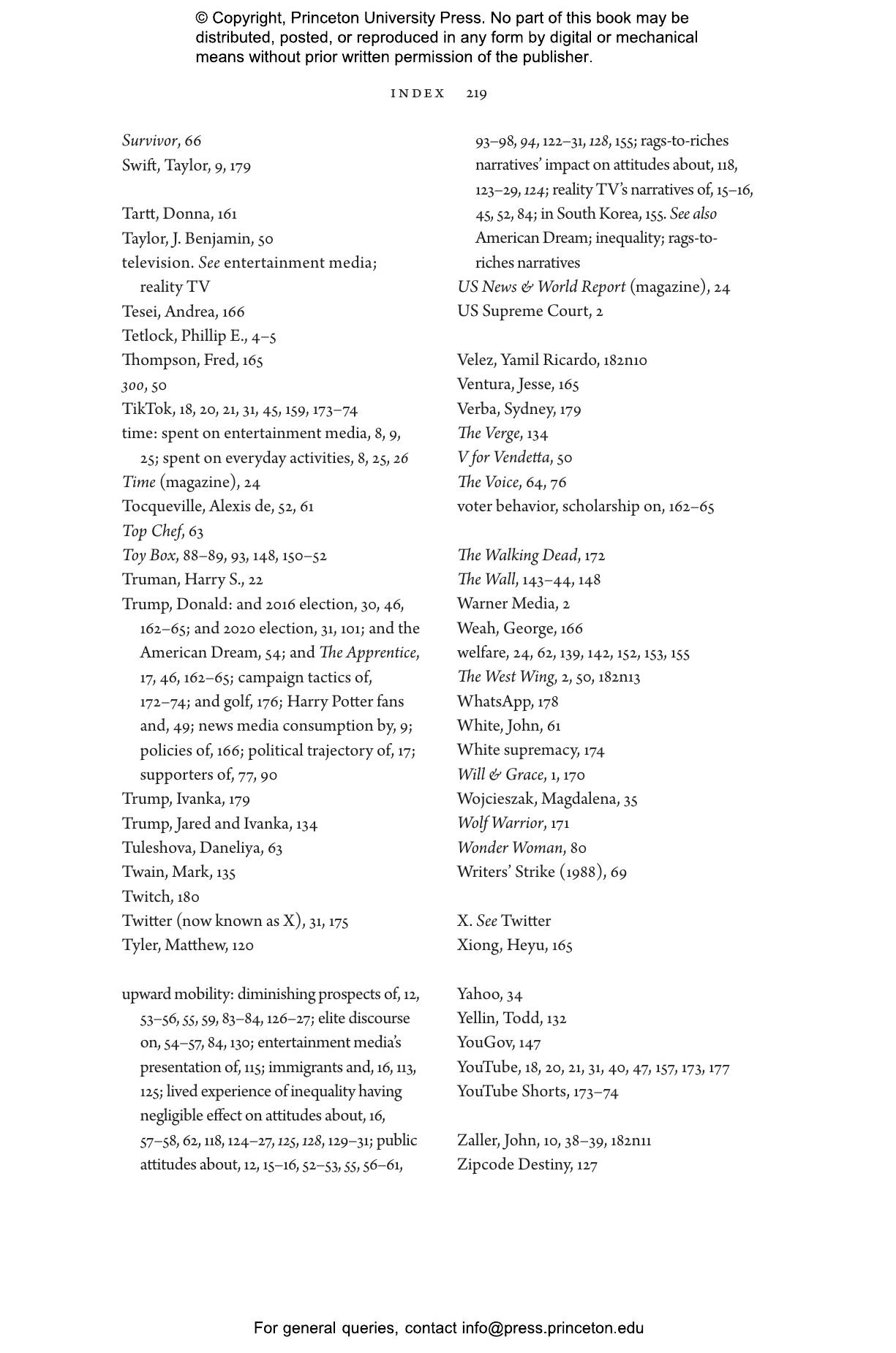In an age of growing wealth disparities, politicians on both sides of the aisle are sounding the alarm about the fading American Dream. Yet despite all evidence to the contrary, many still view the United States as the land of opportunity. The American Mirage addresses this puzzle by exposing the stark reality of today’s media landscape, revealing how popular entertainment media shapes politics and public opinion in an increasingly news-avoiding nation.
Drawing on an eclectic array of original data, Eunji Kim demonstrates how, amid a dazzling array of media choices, many Americans simply are not consuming the news. Instead, millions flock to entertainment programs that showcase real-life success stories, such as American Idol, Shark Tank, and MasterChef. Kim examines how shows like these leave viewers confoundingly optimistic about the prospects of upward mobility, promoting a false narrative of rugged individualism and meritocracy that contradicts what is being reported in the news.
By taking seriously what people casually watch every day, The American Mirage shows how rags-to-riches programs perpetuate the myth of the American Dream, glorifying the economic winners, fostering tolerance for income inequality, and dampening support for redistributive policies that could improve people’s lives.
Eunji Kim is assistant professor of political science at Columbia University.
"Eye-opening. . . . Kim astutely compares reality shows’ persuasive power to that of Gilded Age dime novels, notably Horatio Alger’s 'tales of personal triumph,' in which protagonists rose 'from obscurity to prosperity' by doing good deeds. She also takes aim at her field, asserting that political science’s 'echo chambers of scholarly assumptions' have led it to ignore how political belief is affected by supposedly 'apolitical' media. The result is a troubling assessment of propaganda in pop culture."—Publishers Weekly
"An insightful inquiry into America’s enmeshed political and entertainment landscapes."—Kirkus Reviews
"By design, reality TV was always too good to be true, but its falsehoods are, Kim argues, more pernicious than we thought. . . . Using original data . . . [The American Mirage] implies causality between the rise of MasterChef and the weakening of America’s welfare state."—James Tarmy, Bloomberg
"The most well-written and coherent academic political science book I can recall reading. . . . I enjoyed reading it from beginning to end."—Andrew Gelman, Statistical Modeling, Causal Inference, and Social Science Blog
“In this pathbreaking book, Kim shows why understanding American politics requires understanding American society, including seemingly apolitical parts. The American Mirage sets an example of what cutting-edge social science looks like.”—James Druckman, coauthor of Partisan Hostility and American Democracy
“Scholars have long bemoaned the general public’s inattention to political news, a state of affairs that has worsened as the explosion of entertainment media has further crowded out attention to informational media in recent decades. This book examines what scholars have largely overlooked—that entertainment media, especially reality TV, convey political narratives and affect political attitudes. The varied analyses will make scholars reexamine their views, and as an added bonus, the book is a fun read besides.”—Morris P. Fiorina, Stanford University
“A terrific book with important and novel insights on the role of entertainment media in American politics. The American Mirage brings a fresh perspective and an abundance of original evidence to bear on one of the most important features of contemporary politics. A must-read for anyone interested in the political consequences of our changing media environment.”—Martin Gilens, University of California, Los Angeles
“Kim has written a brilliant book that will change how we perceive the scope of political communication. It is careful, insightful, and a joy to read. This book will change not only how we understand political information, but how we understand the way people interpret the world around them as they make political decisions. It is an important push and reframe for disciplines that had previously focused only on news.”—Yanna Krupnikov, coauthor of The Other Divide


